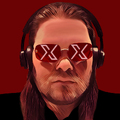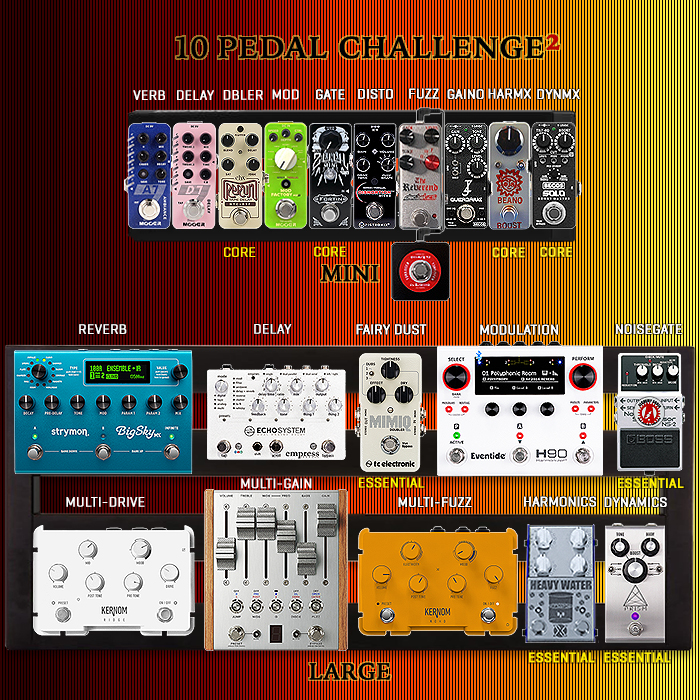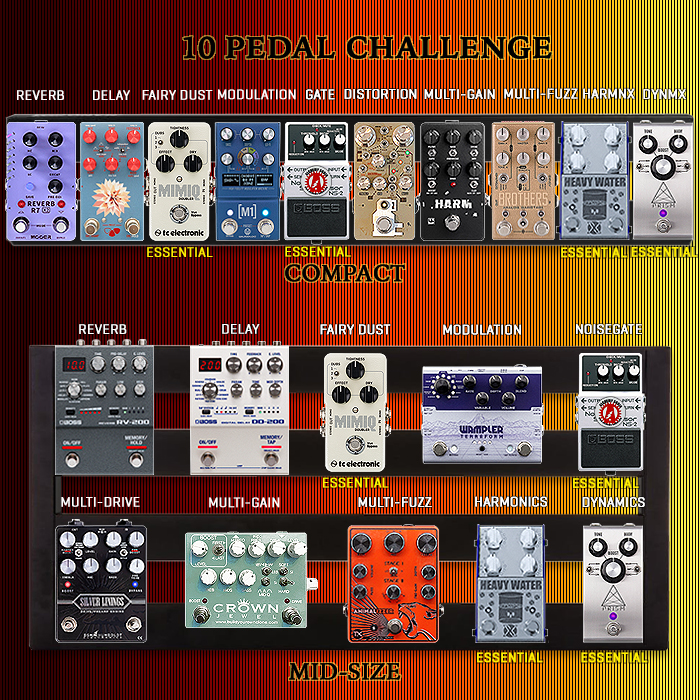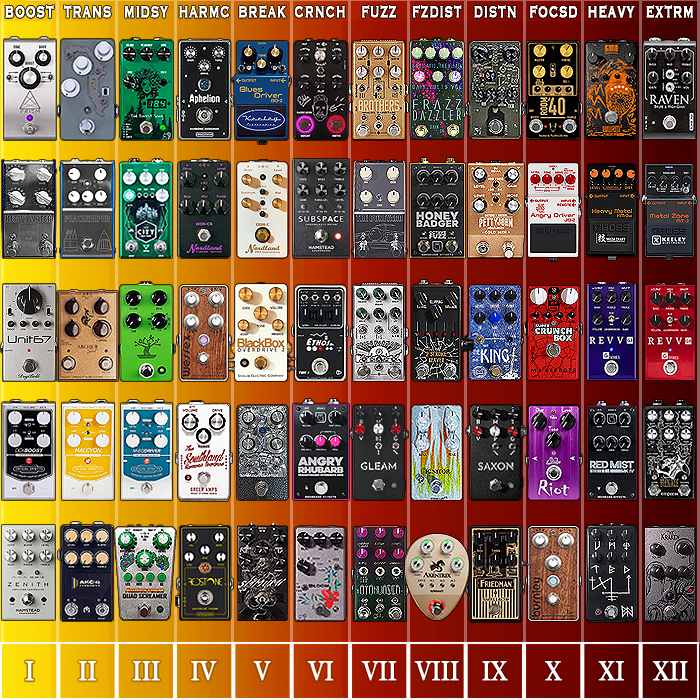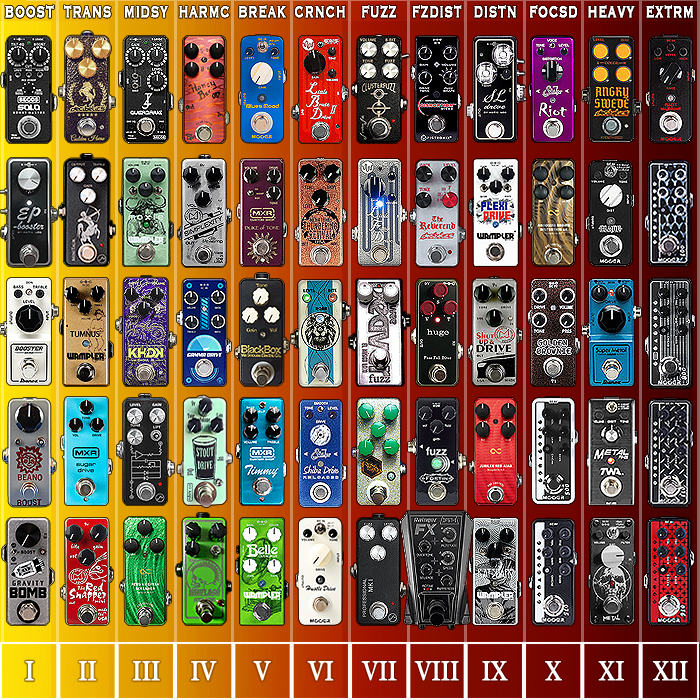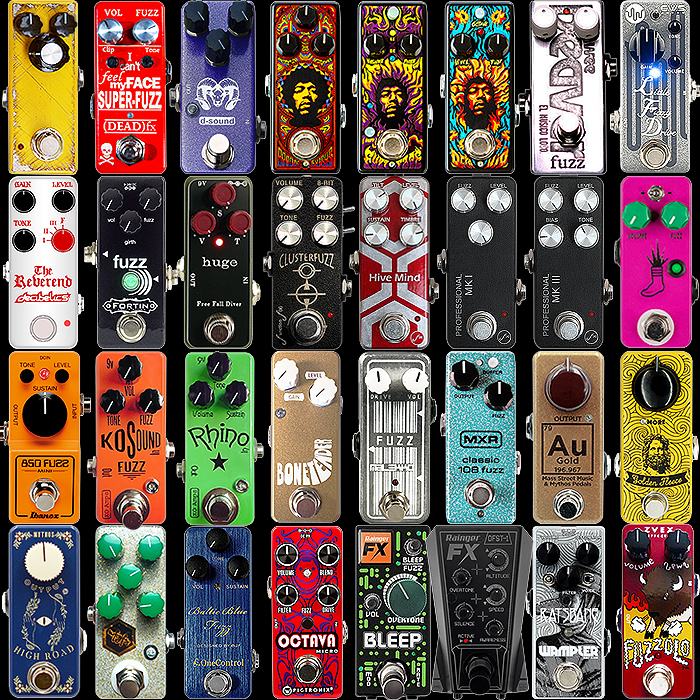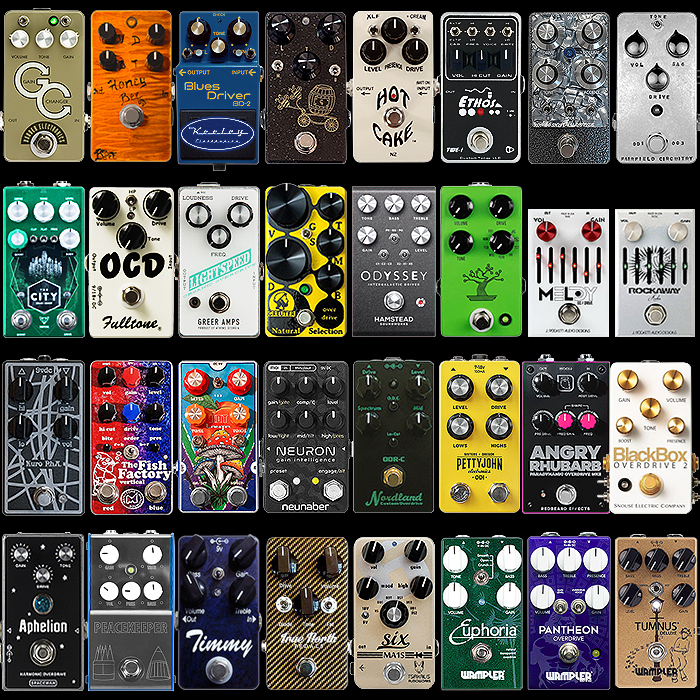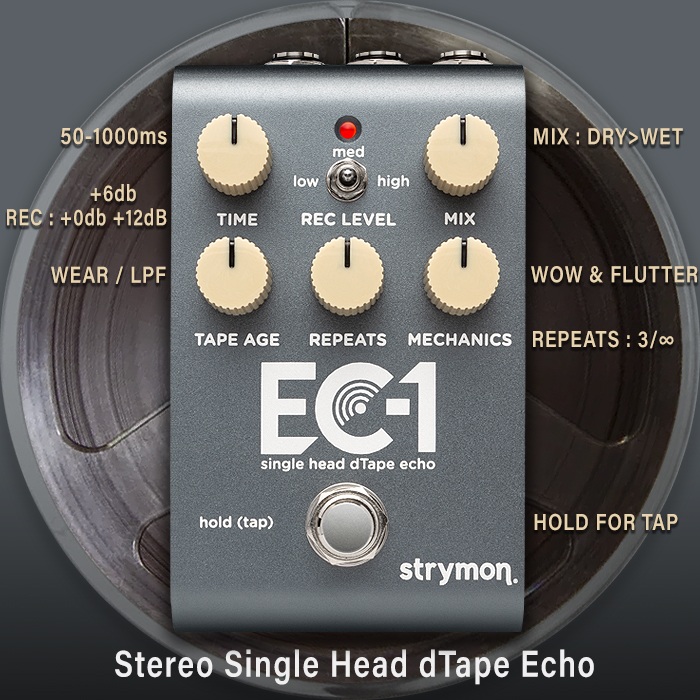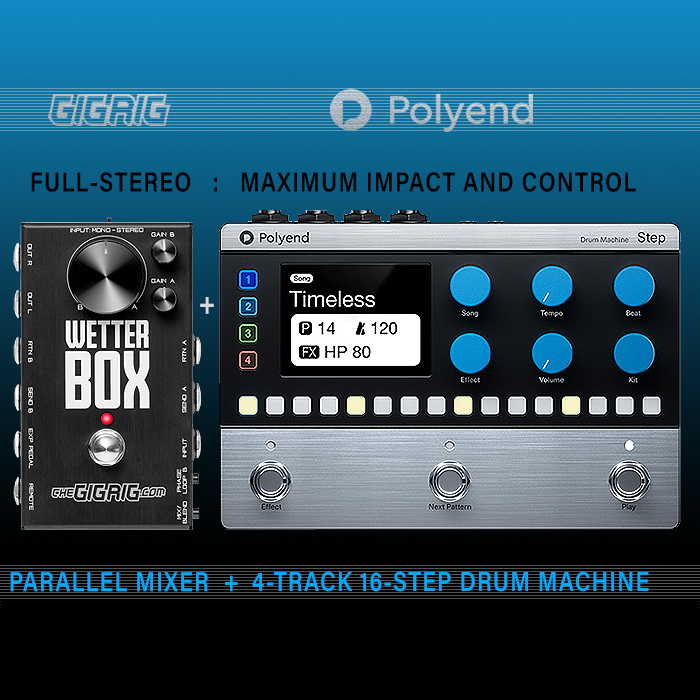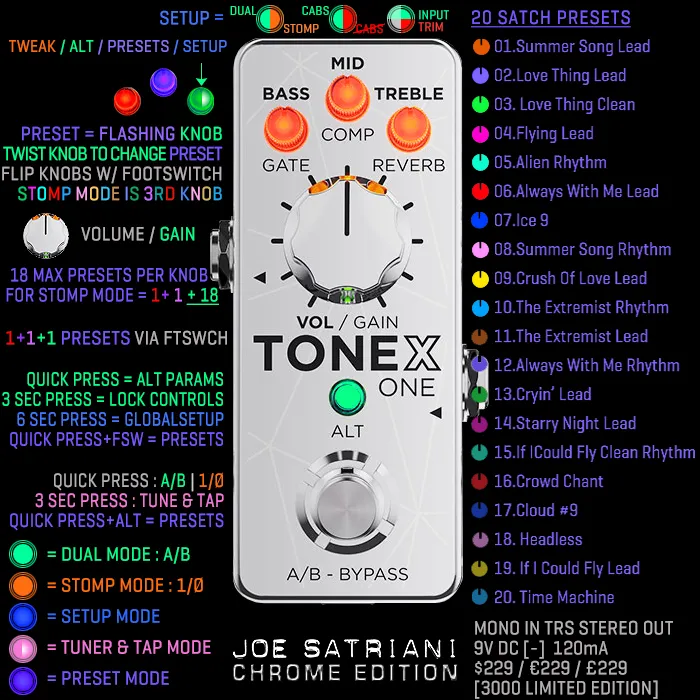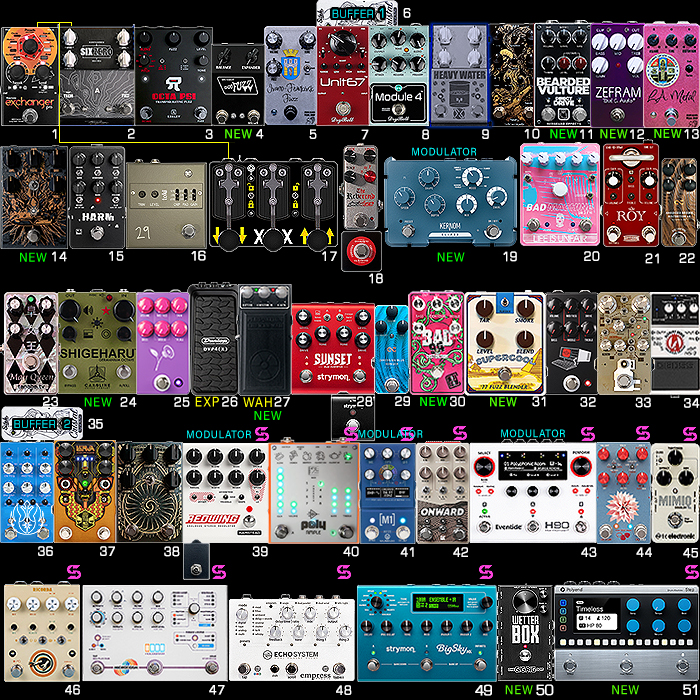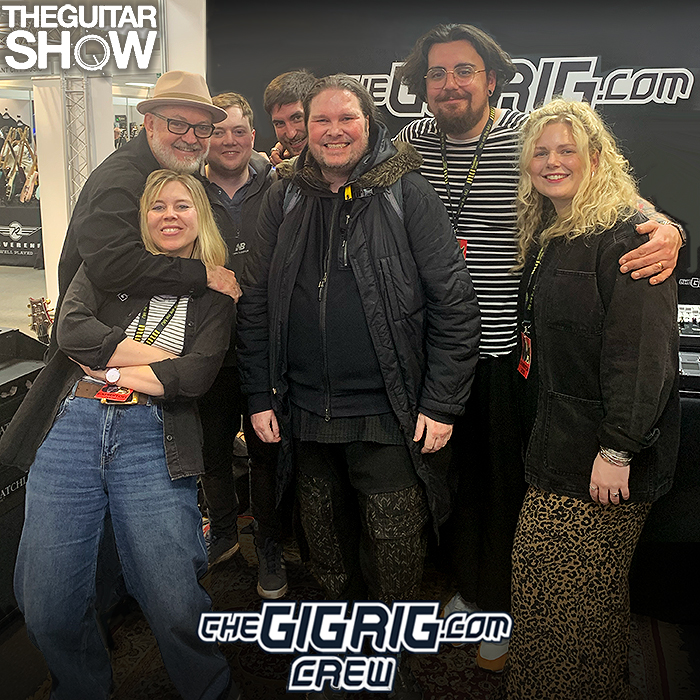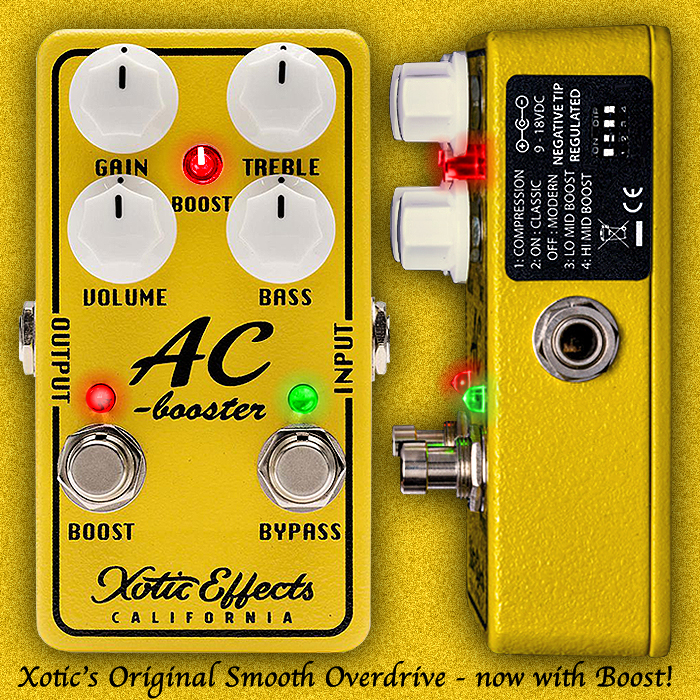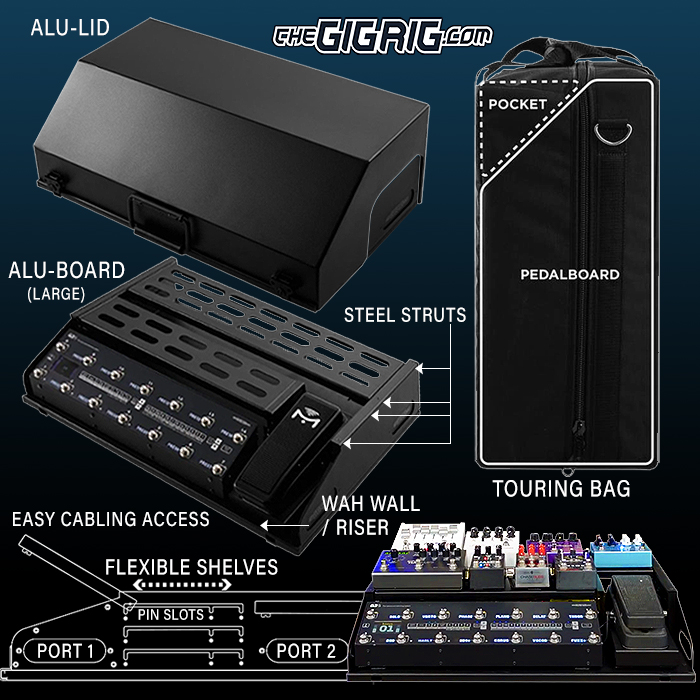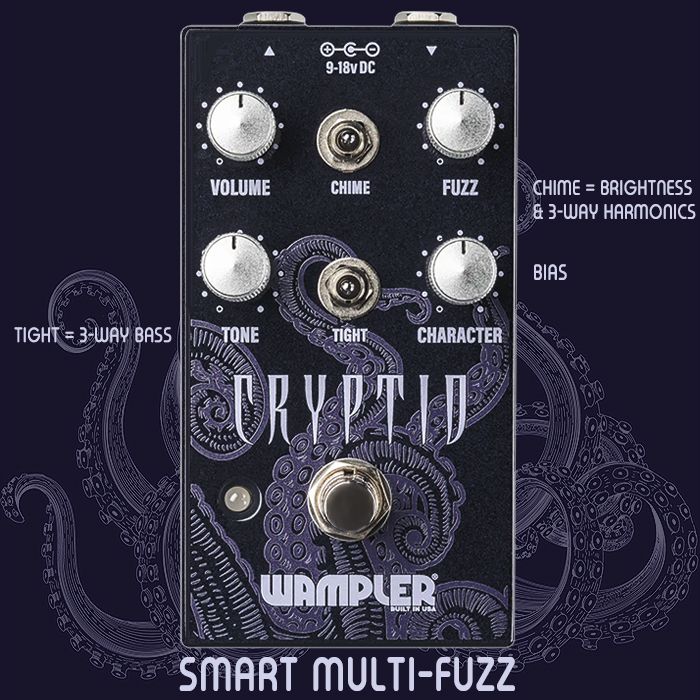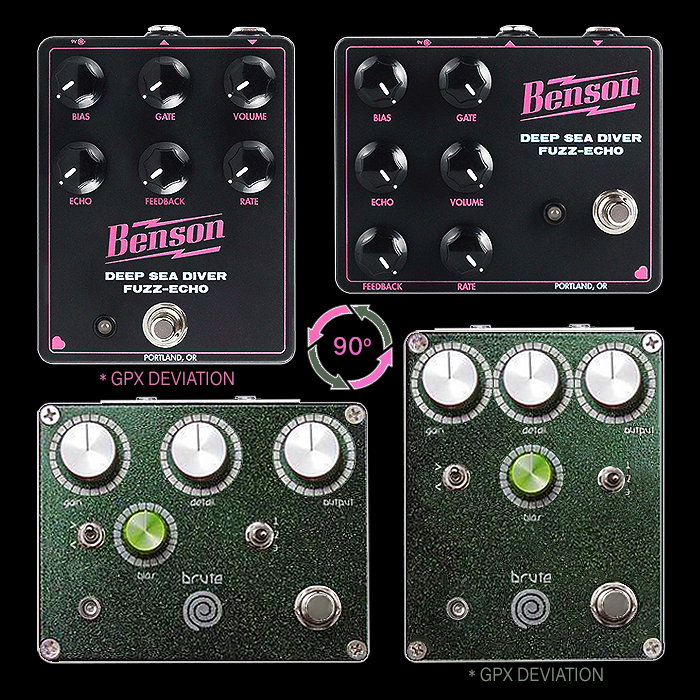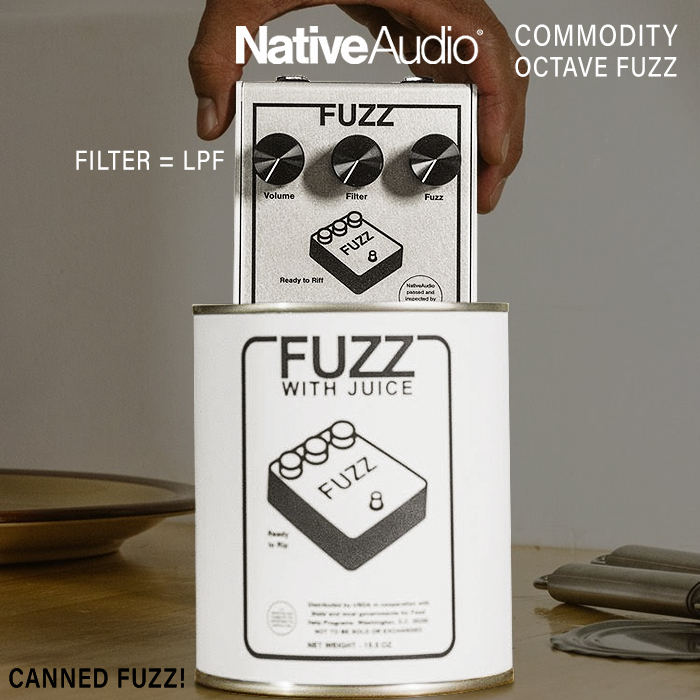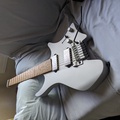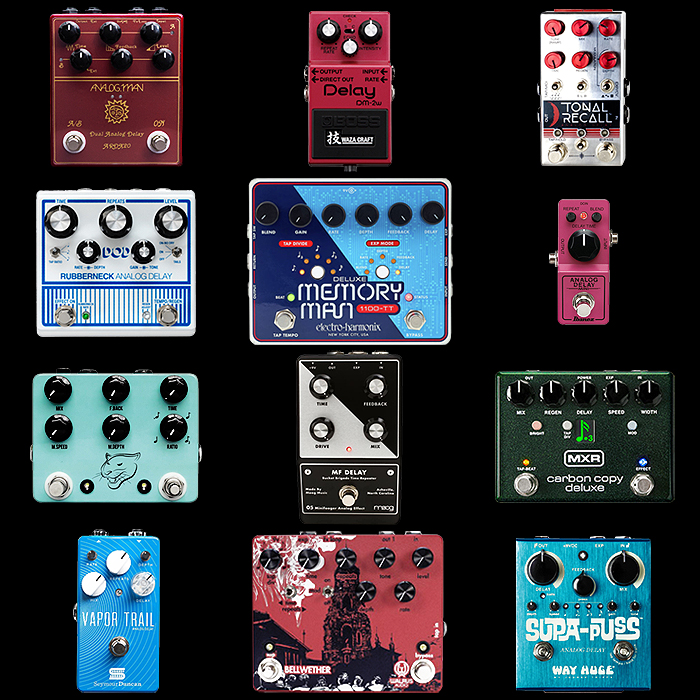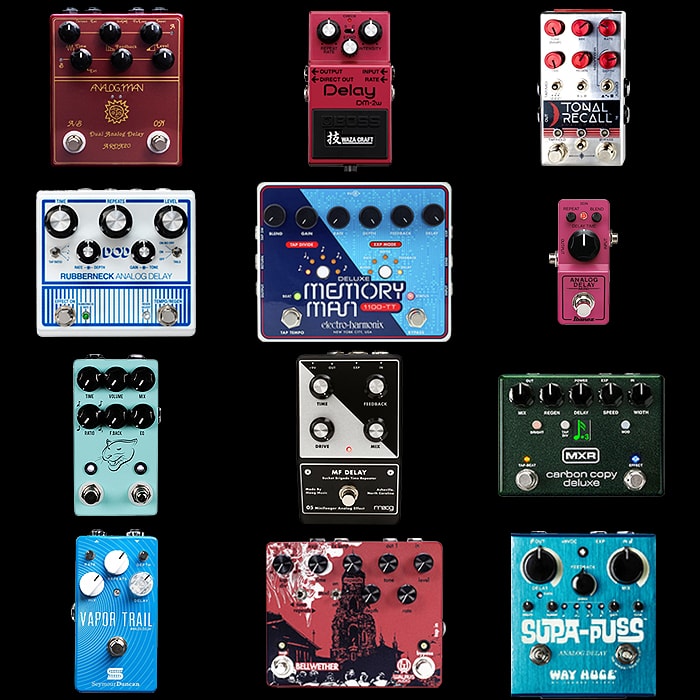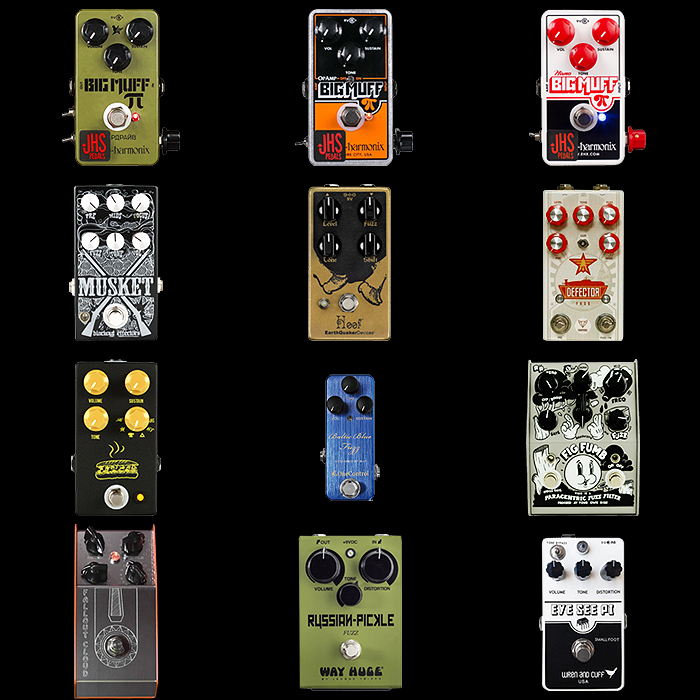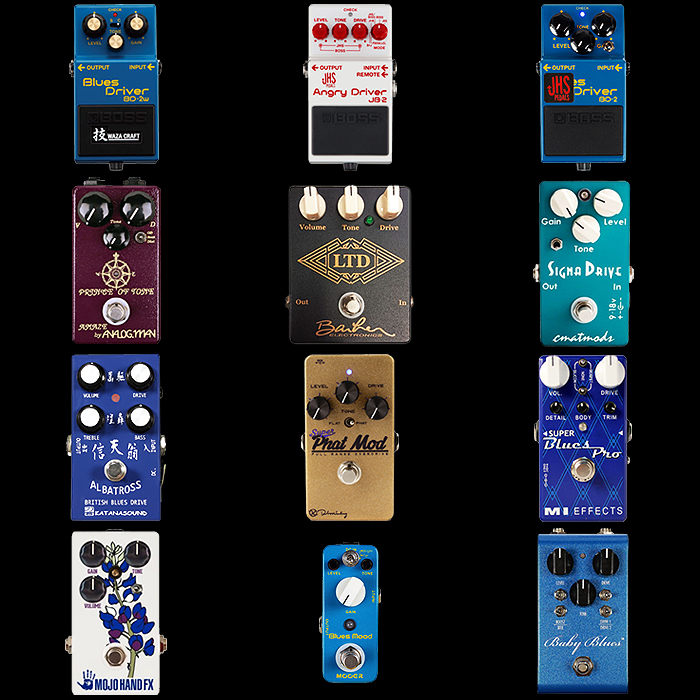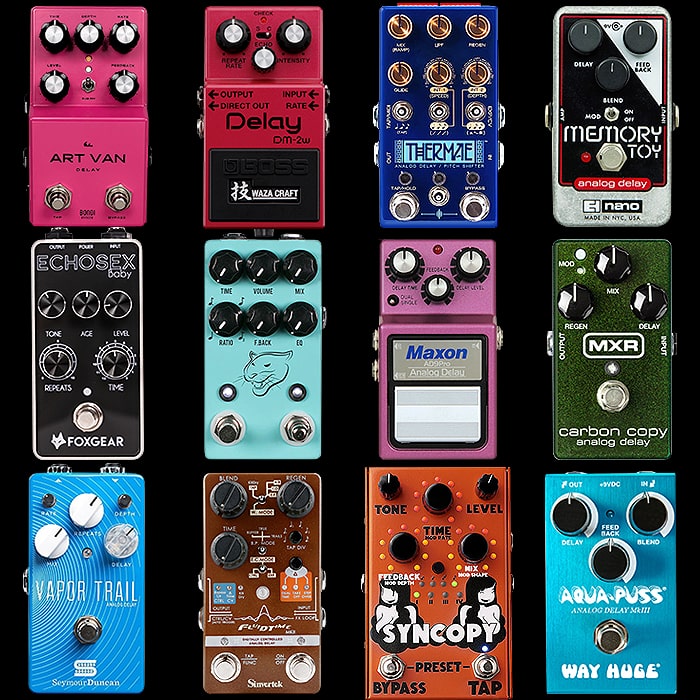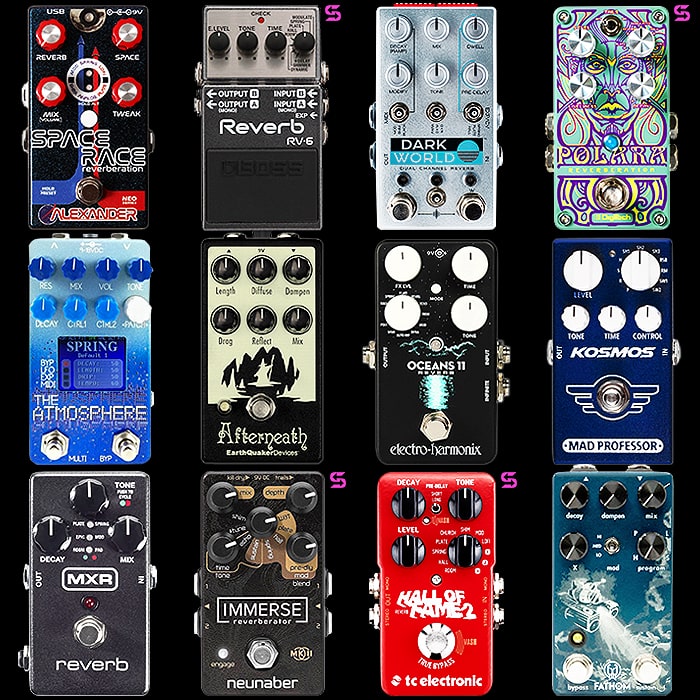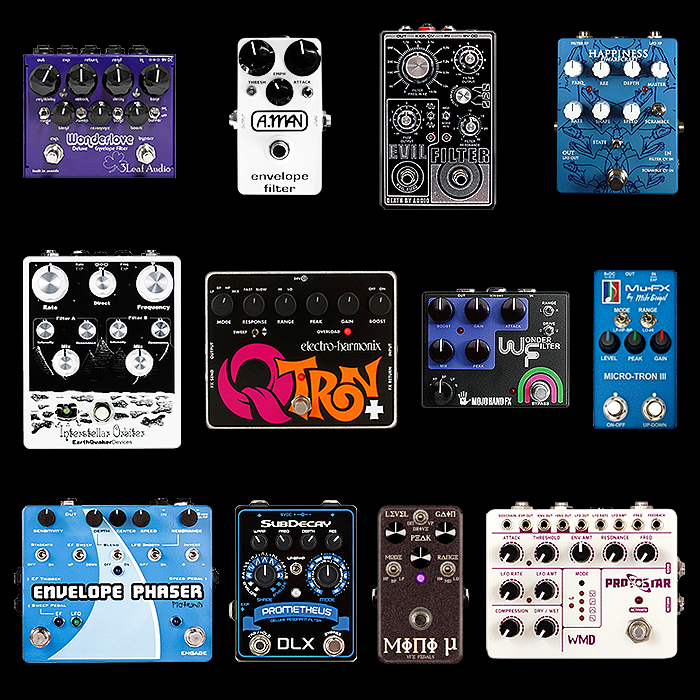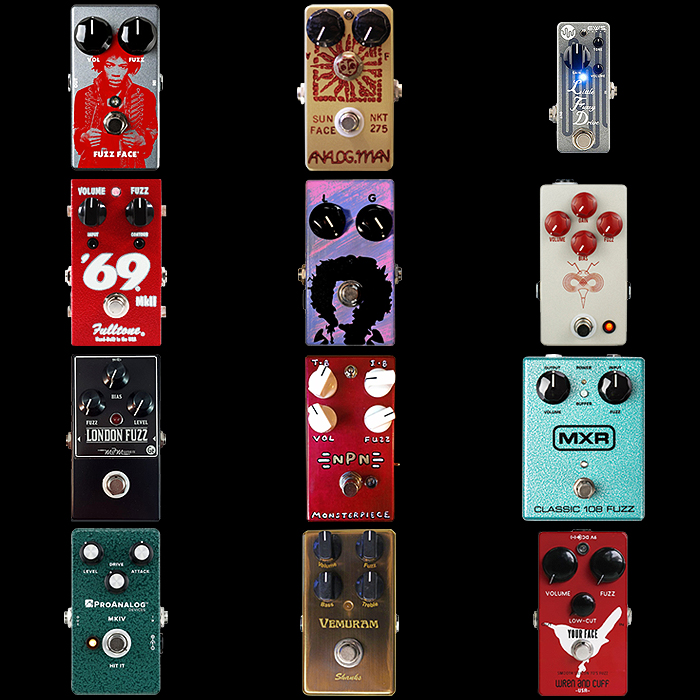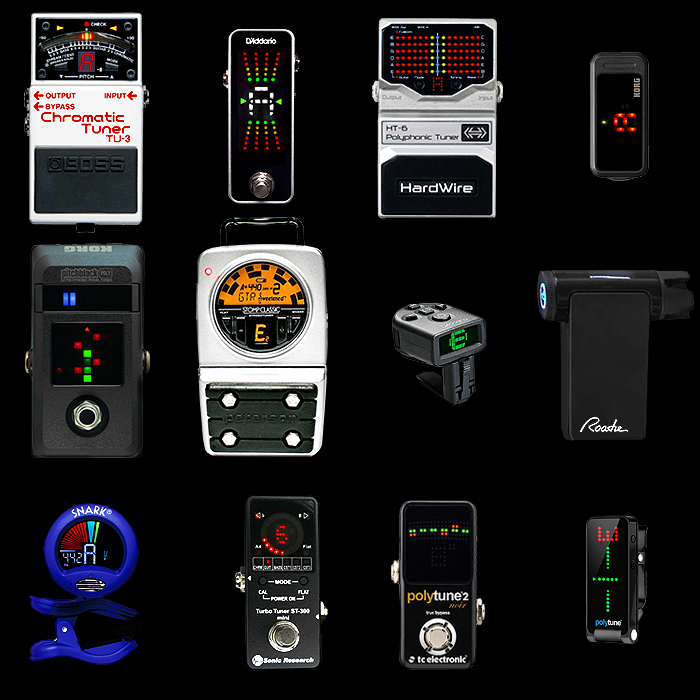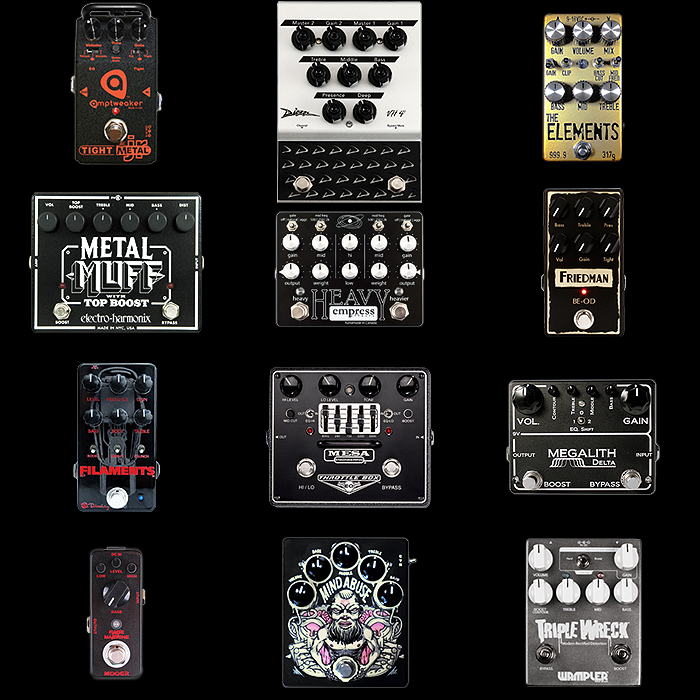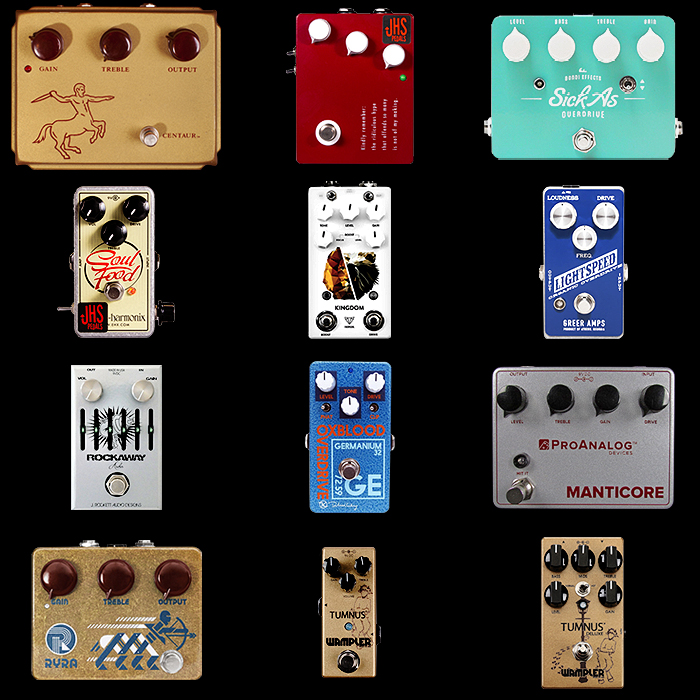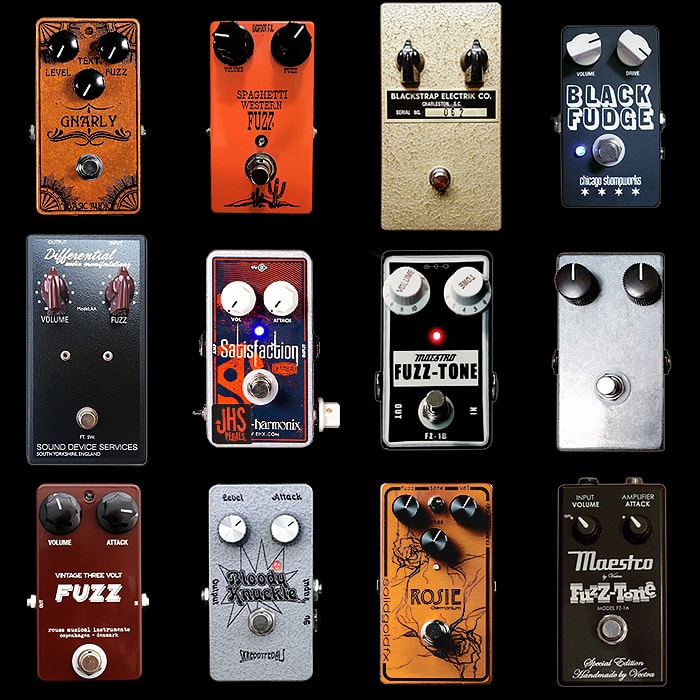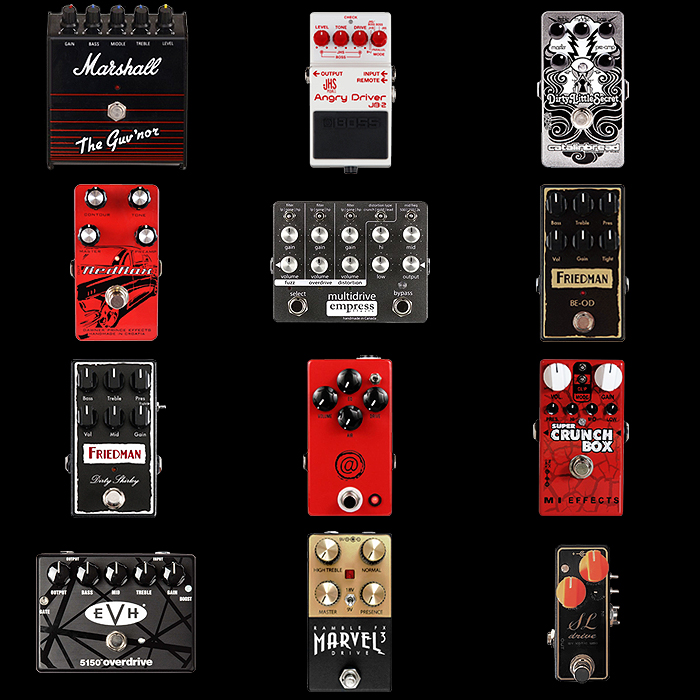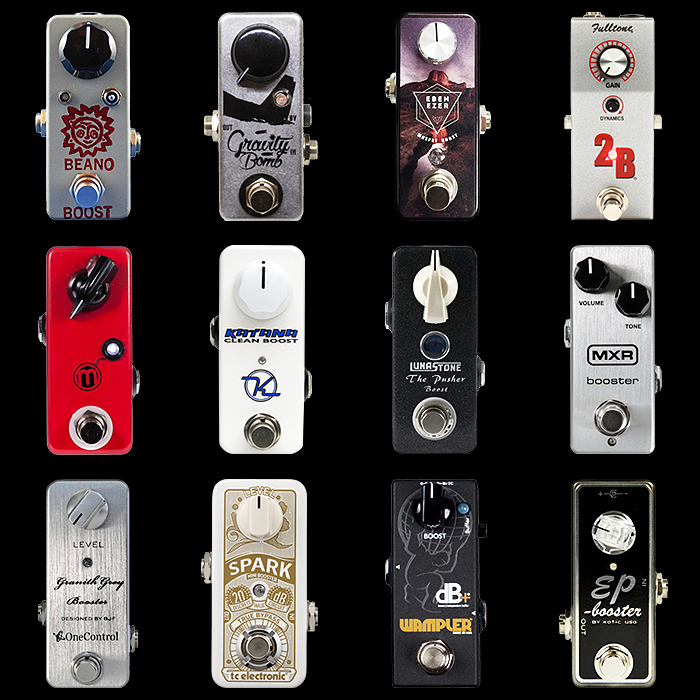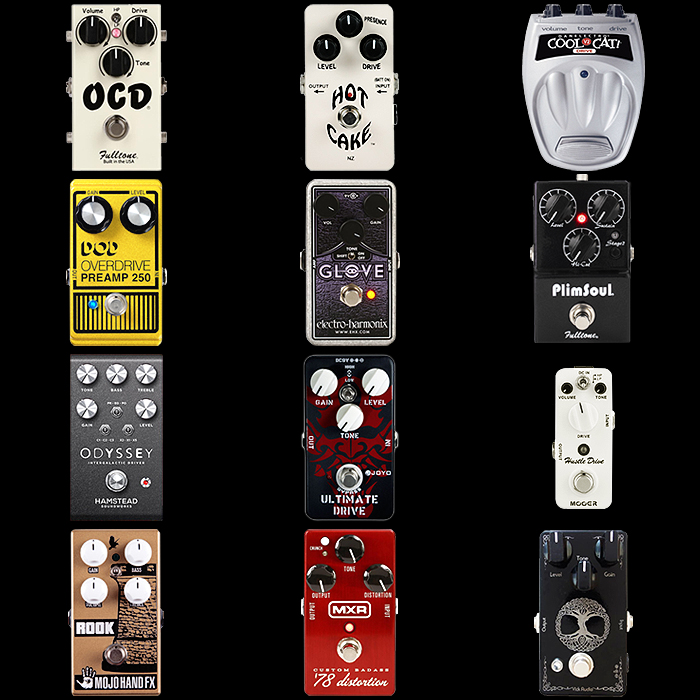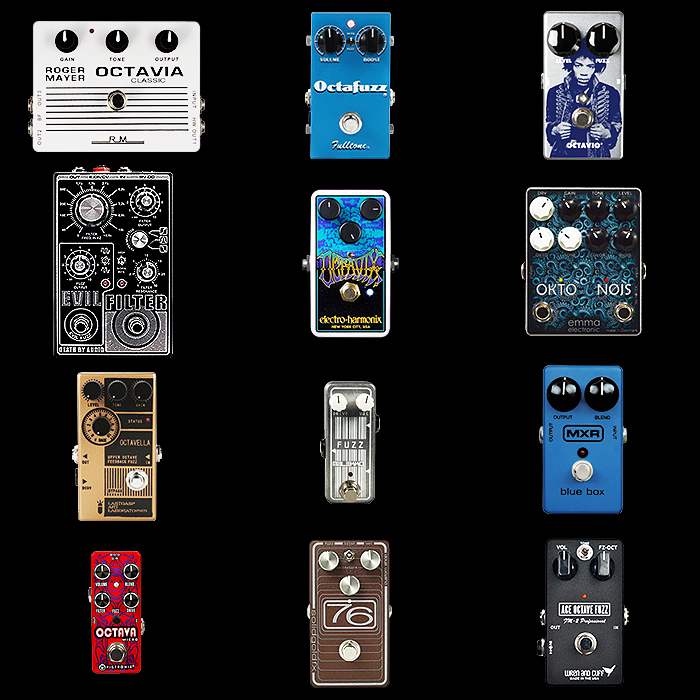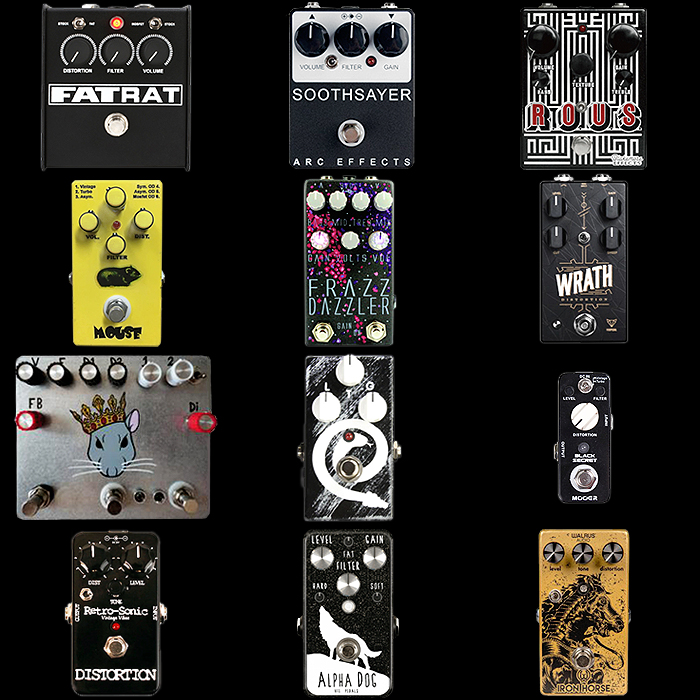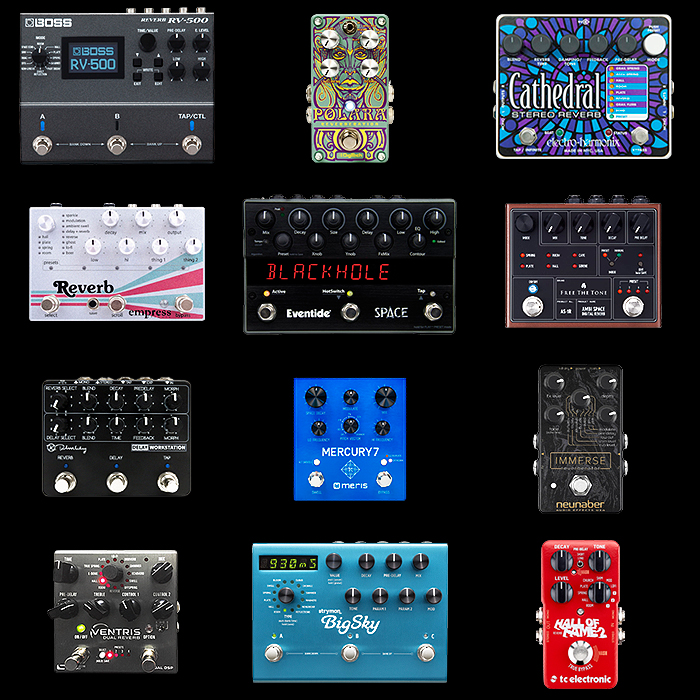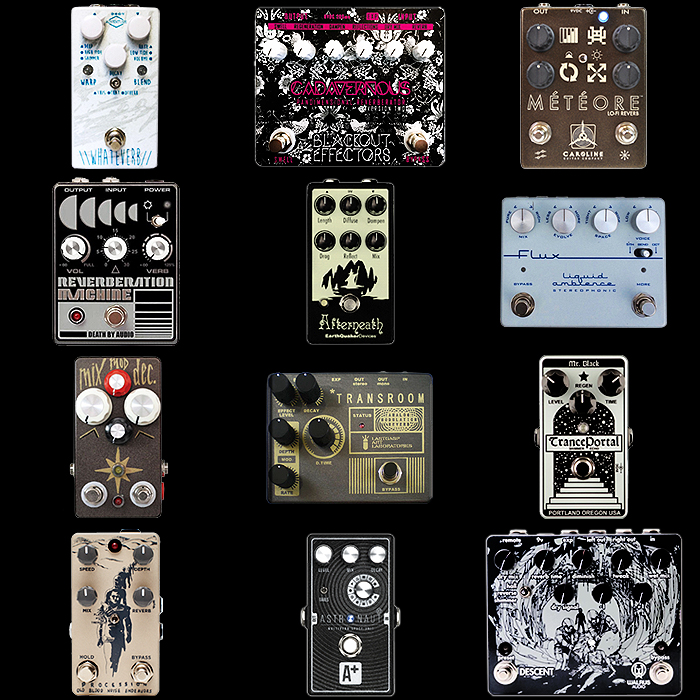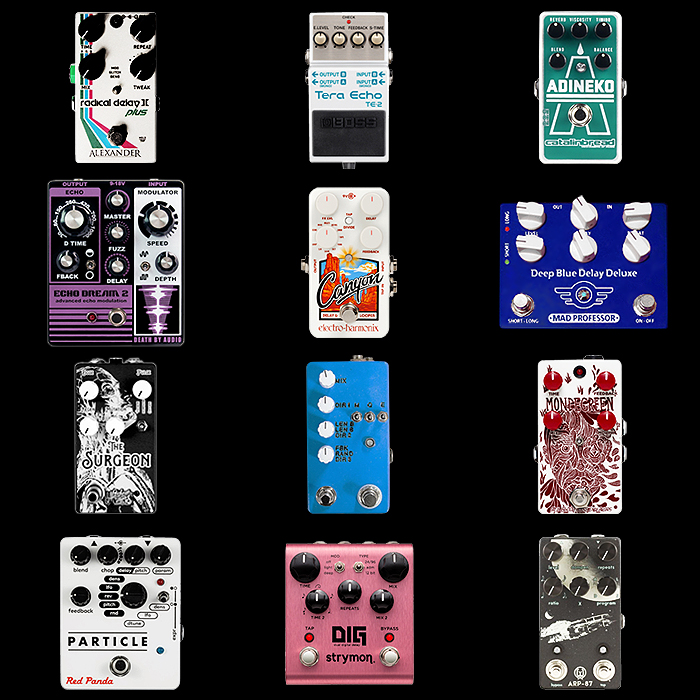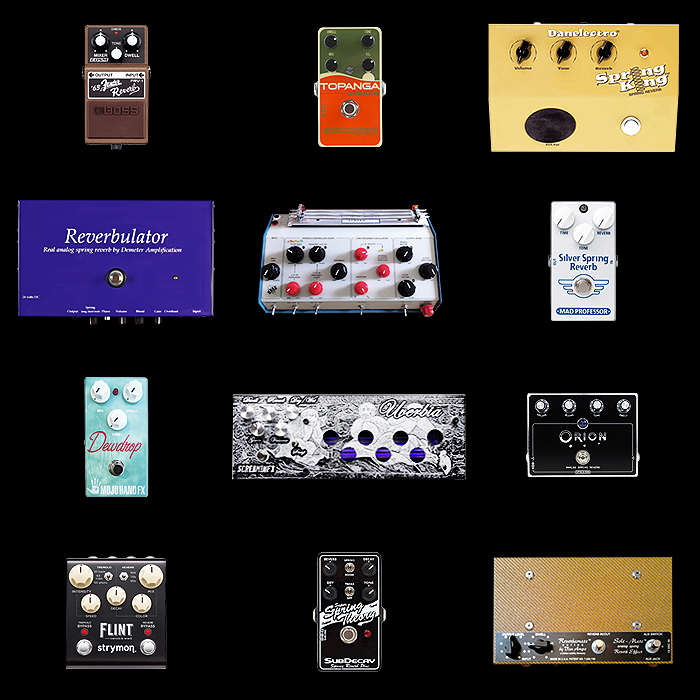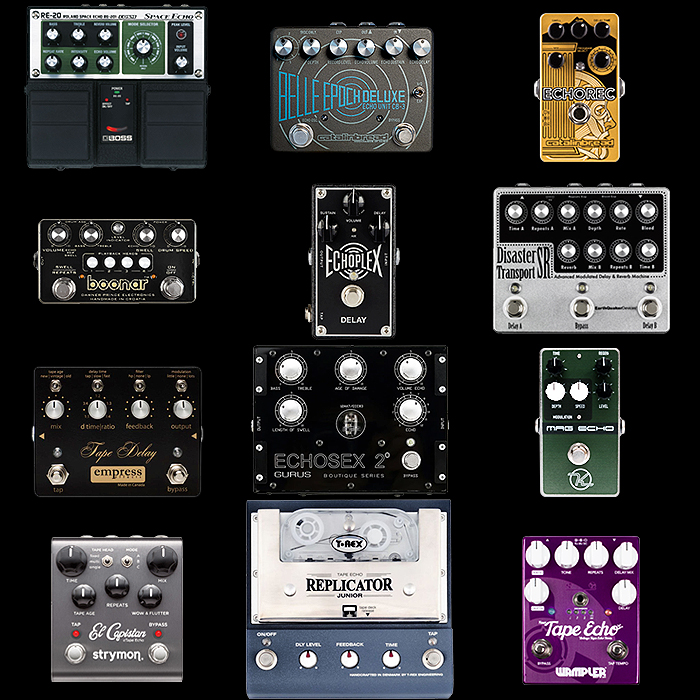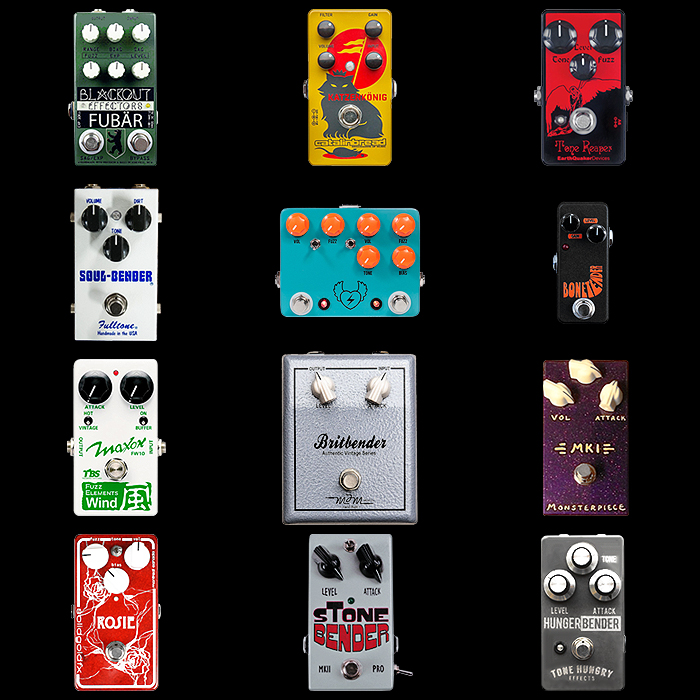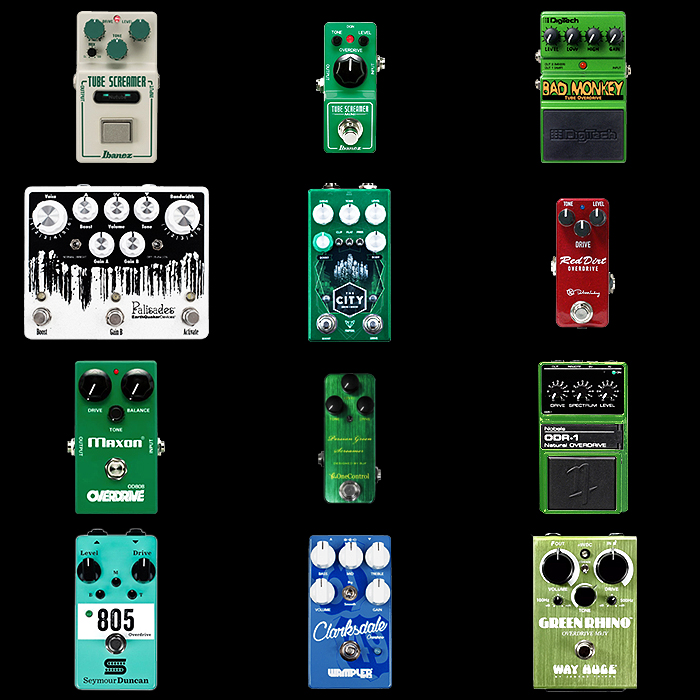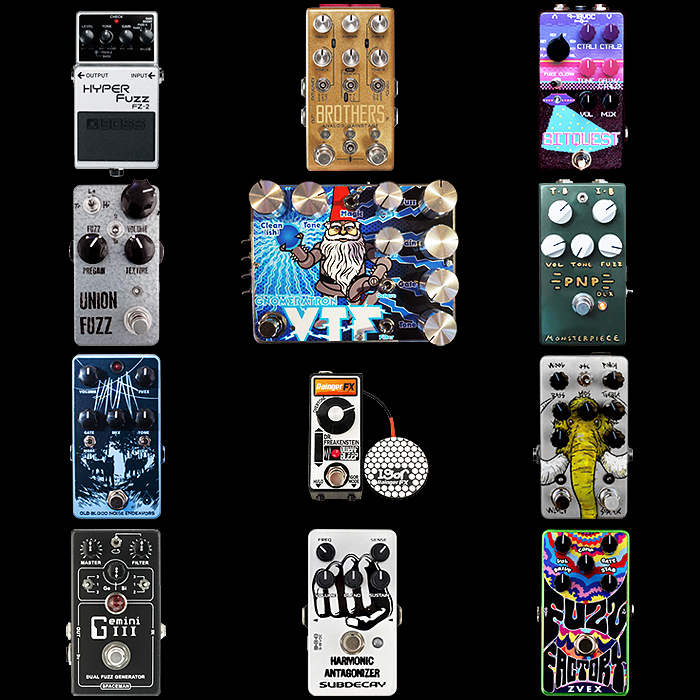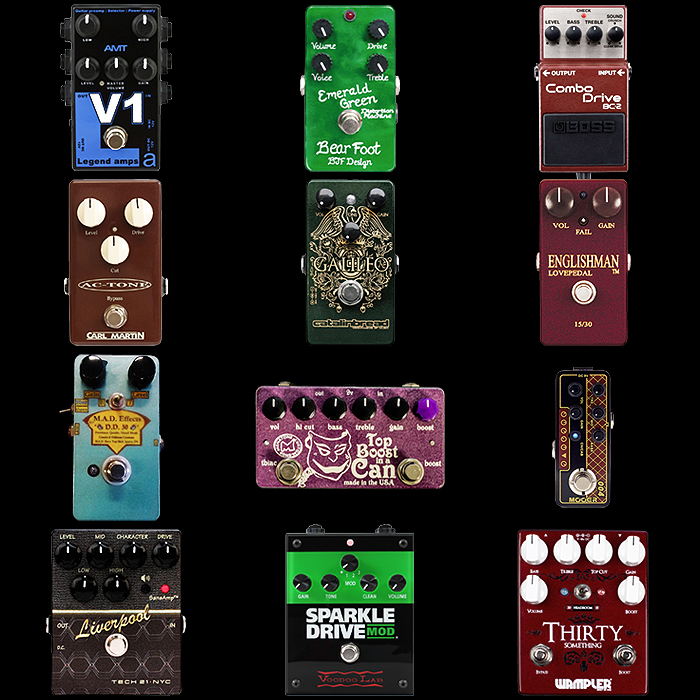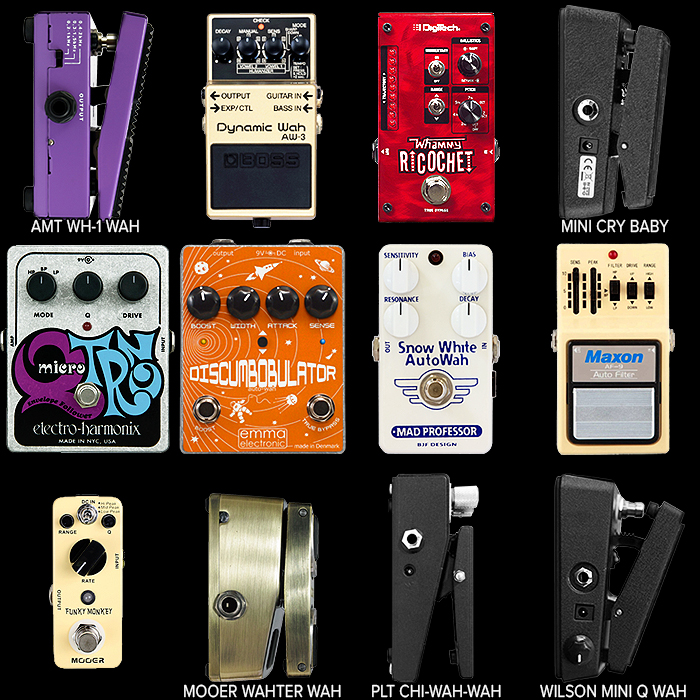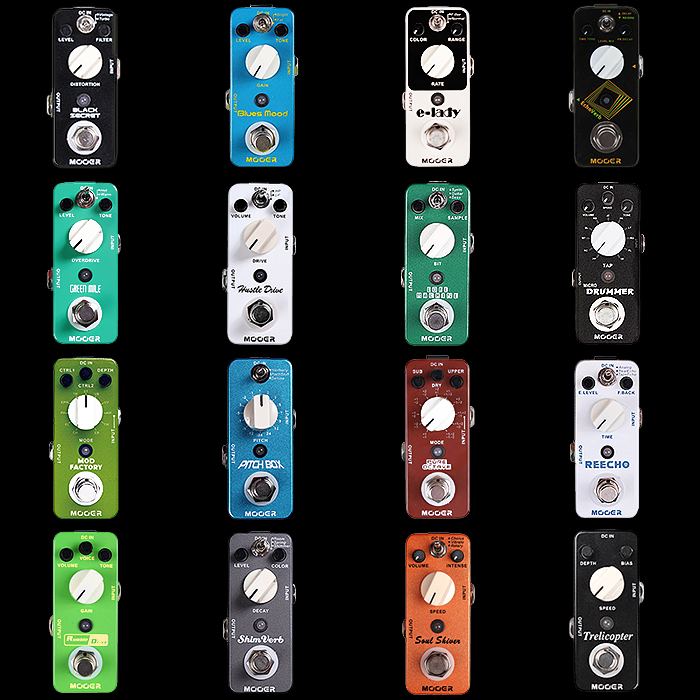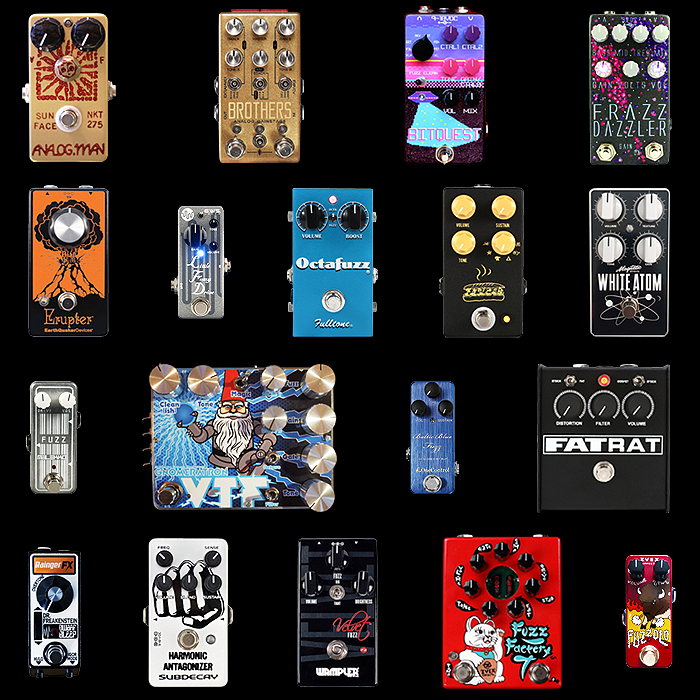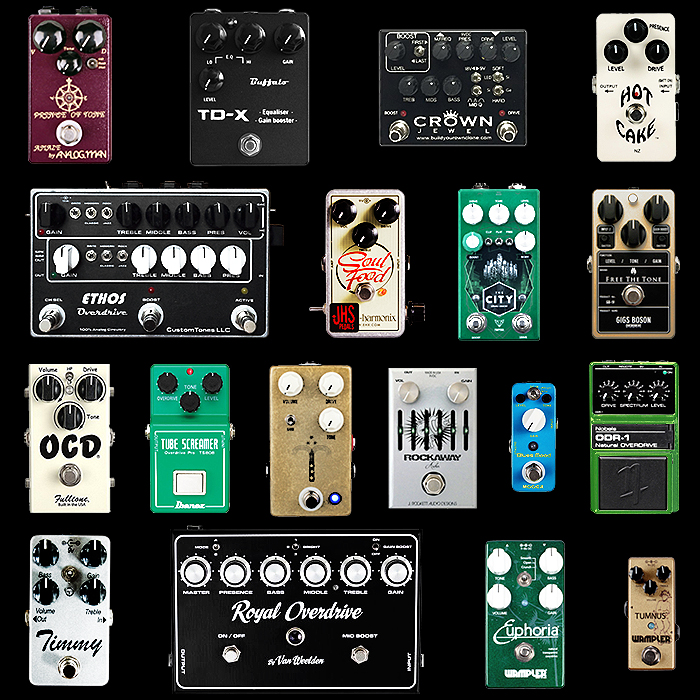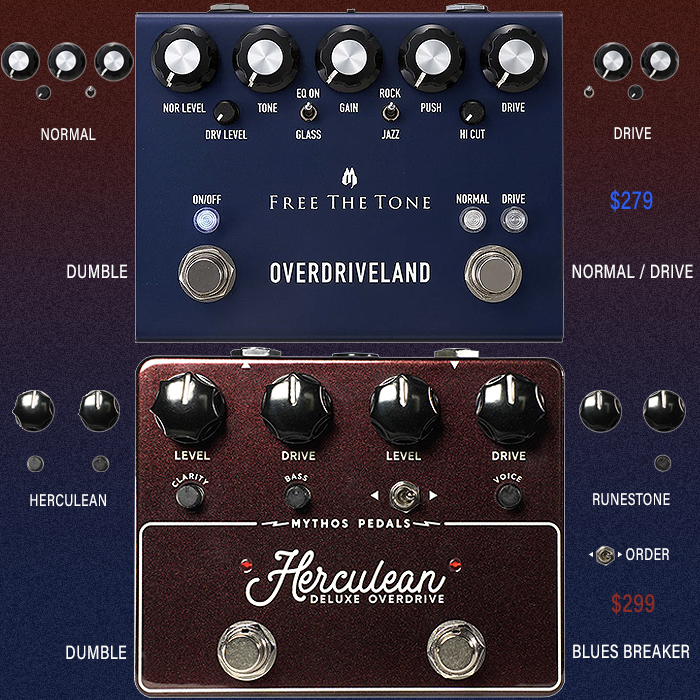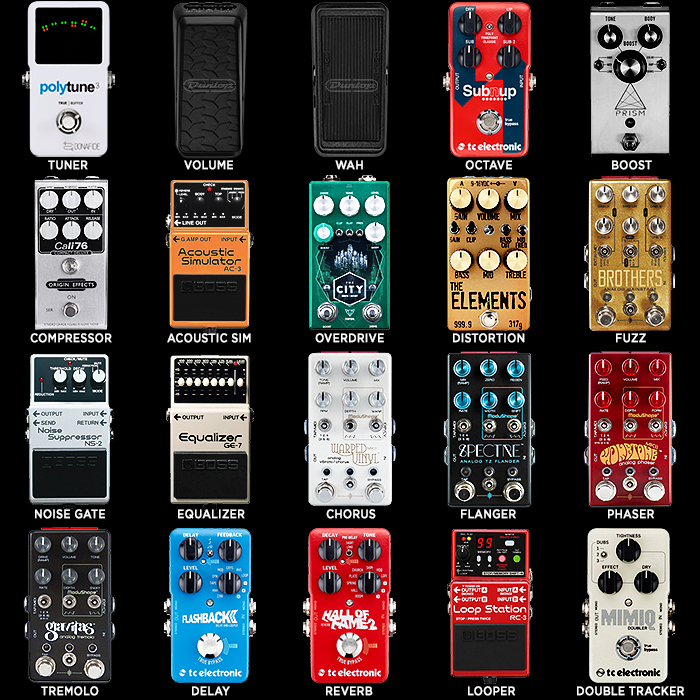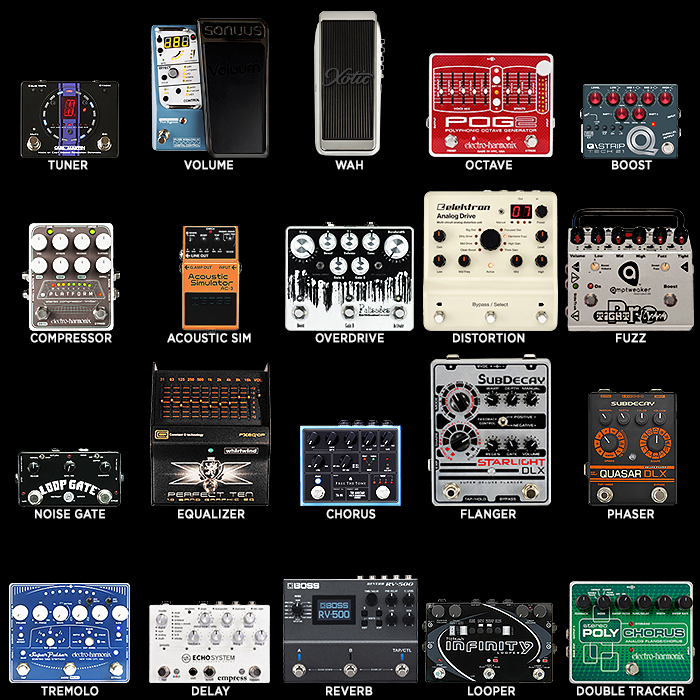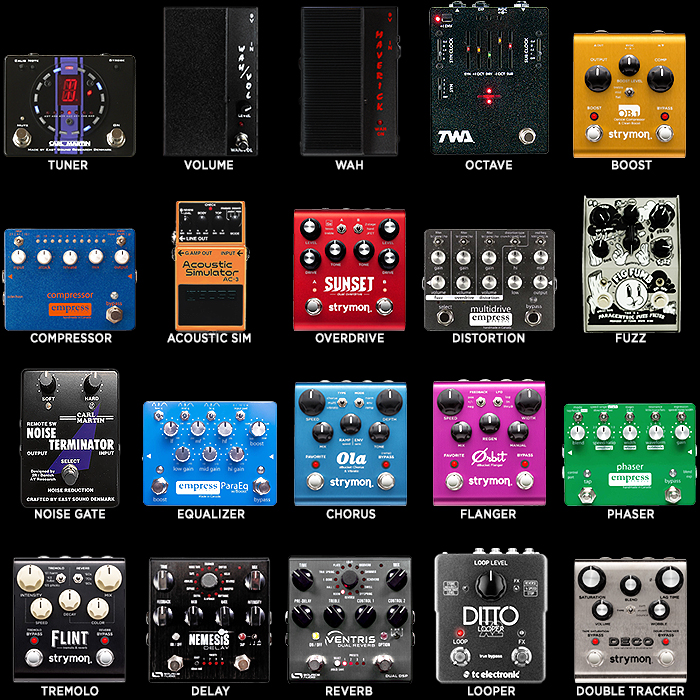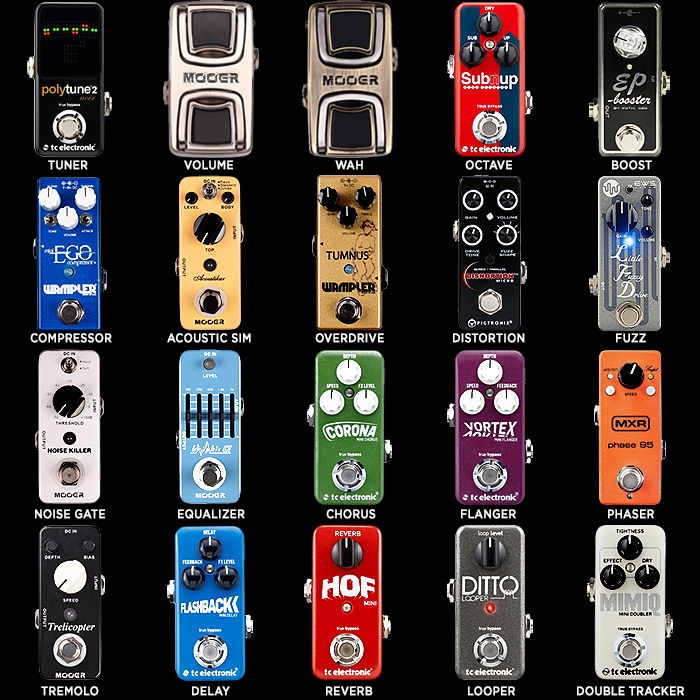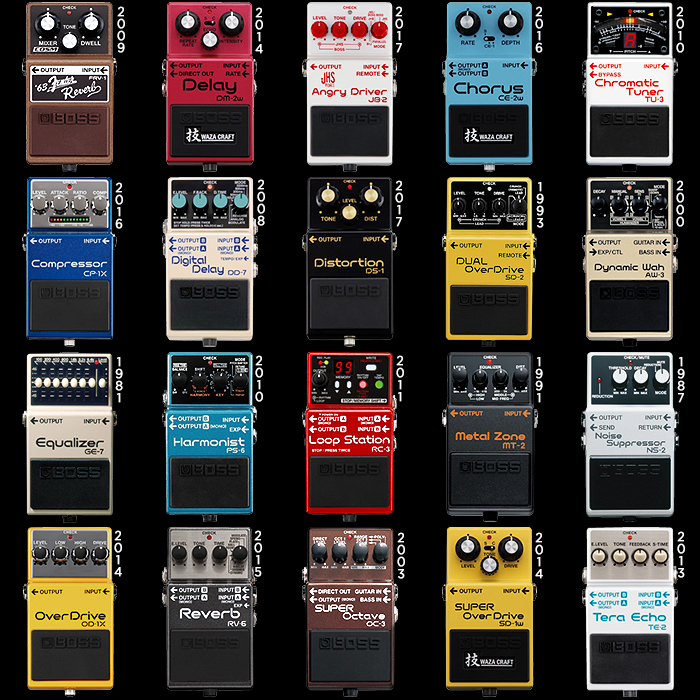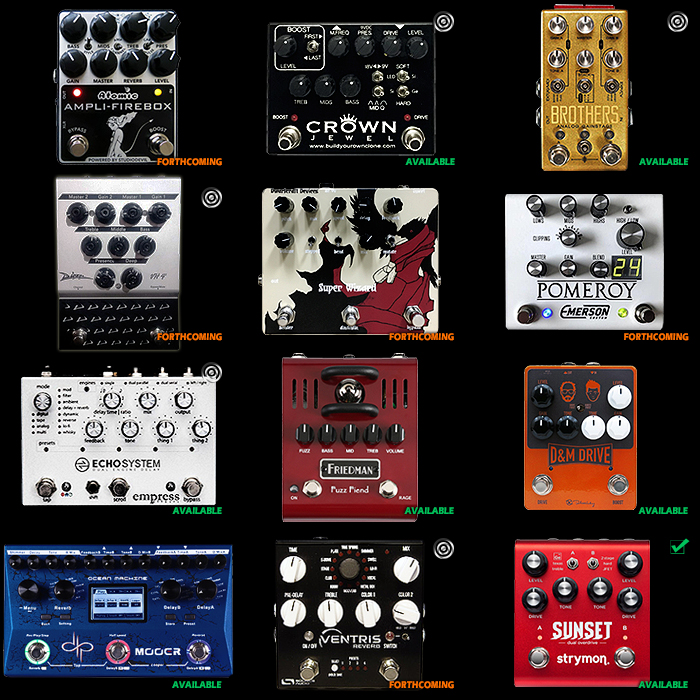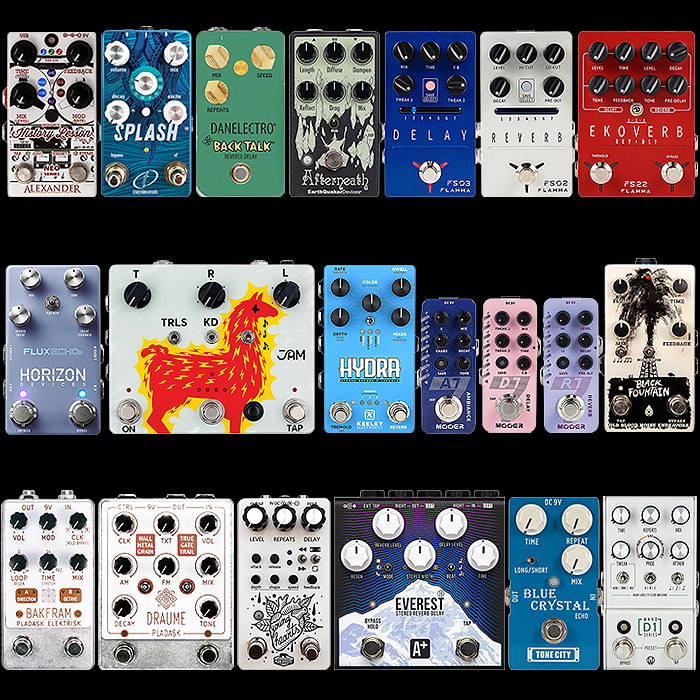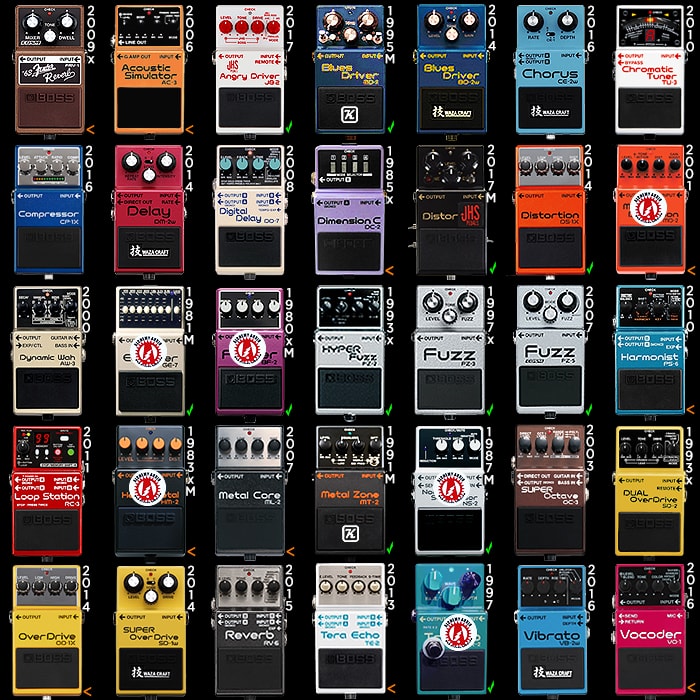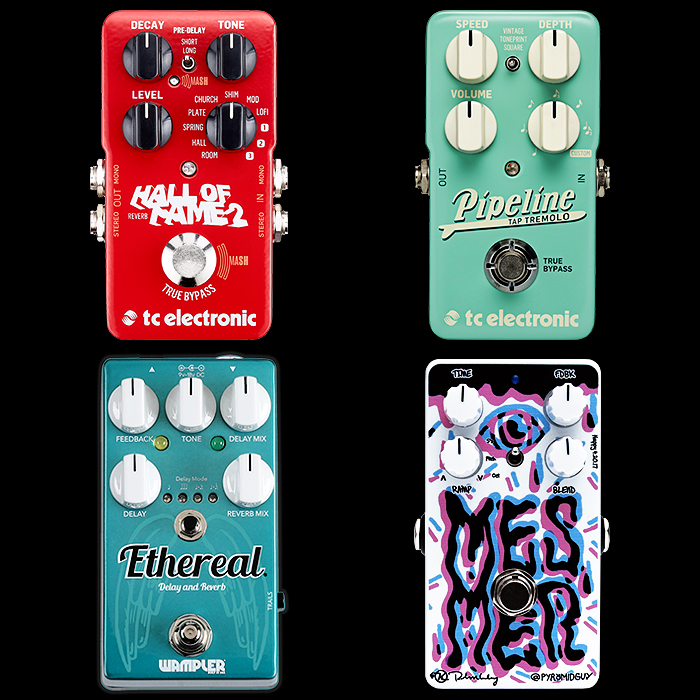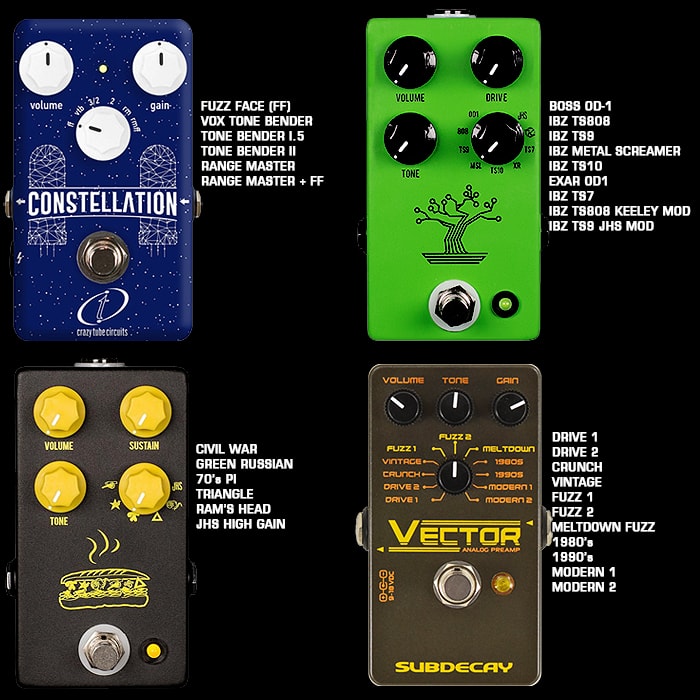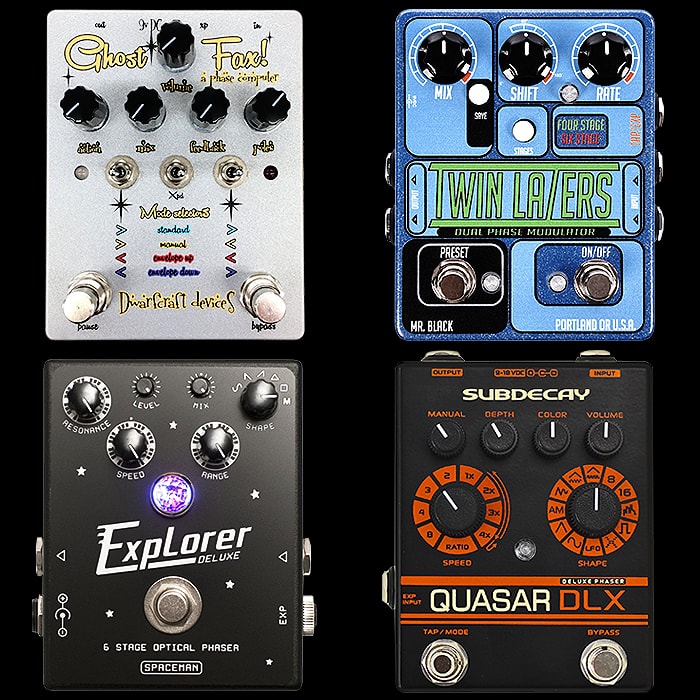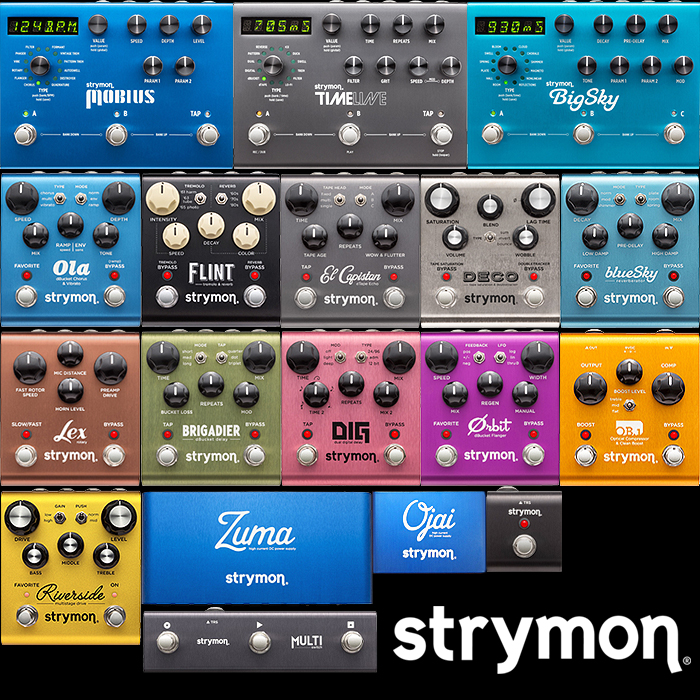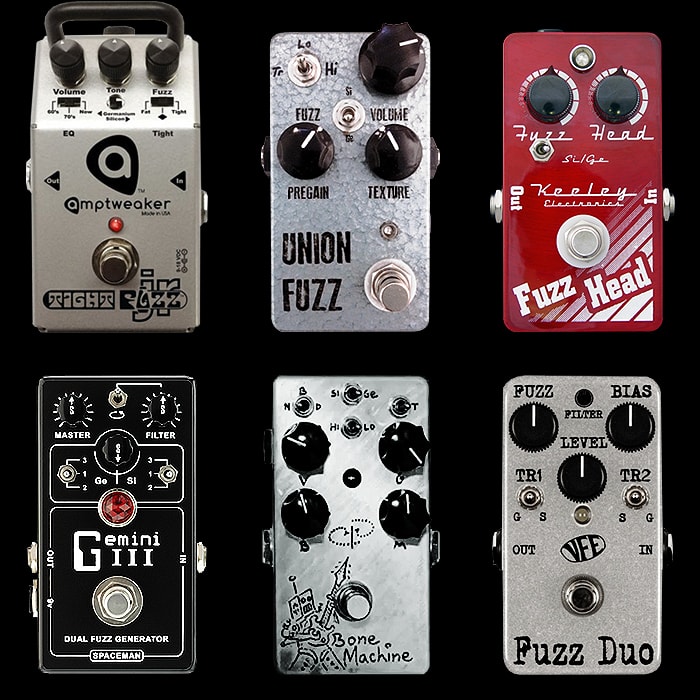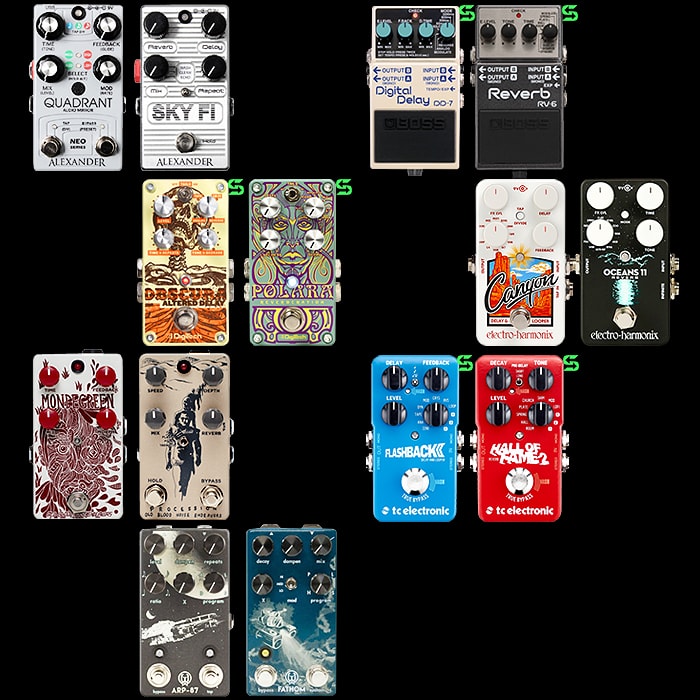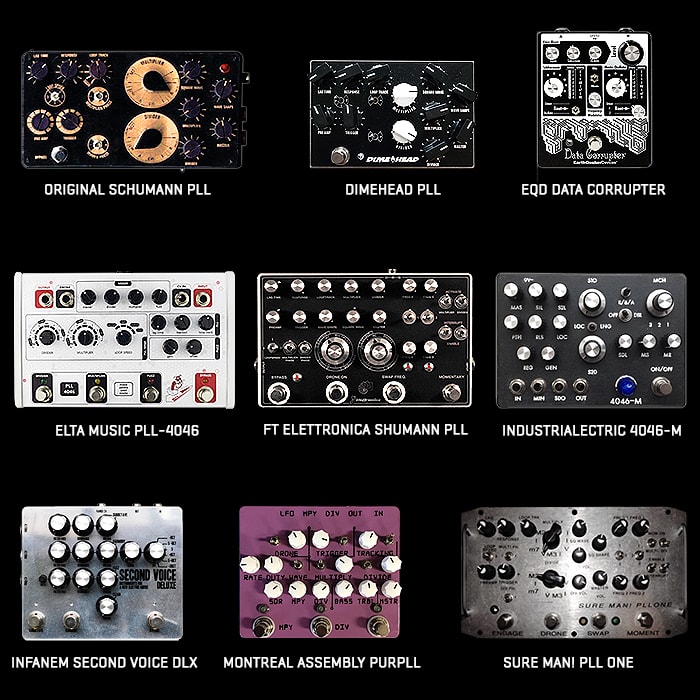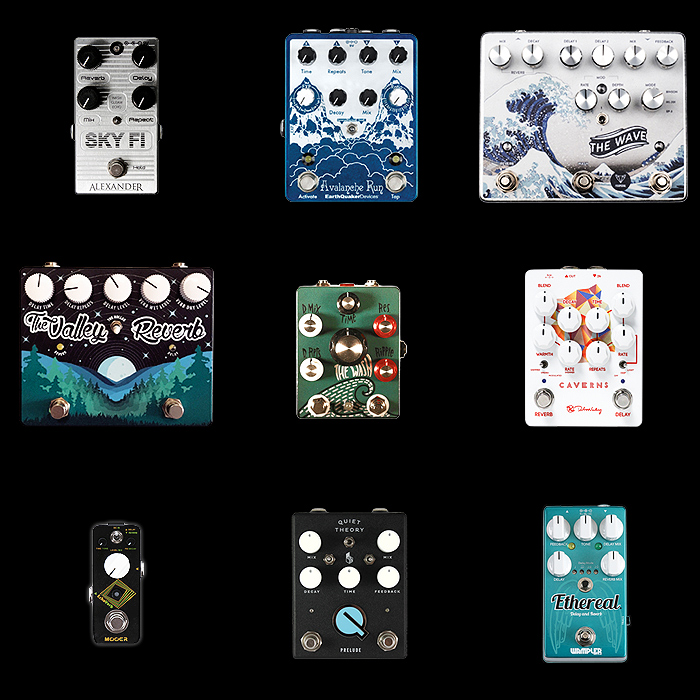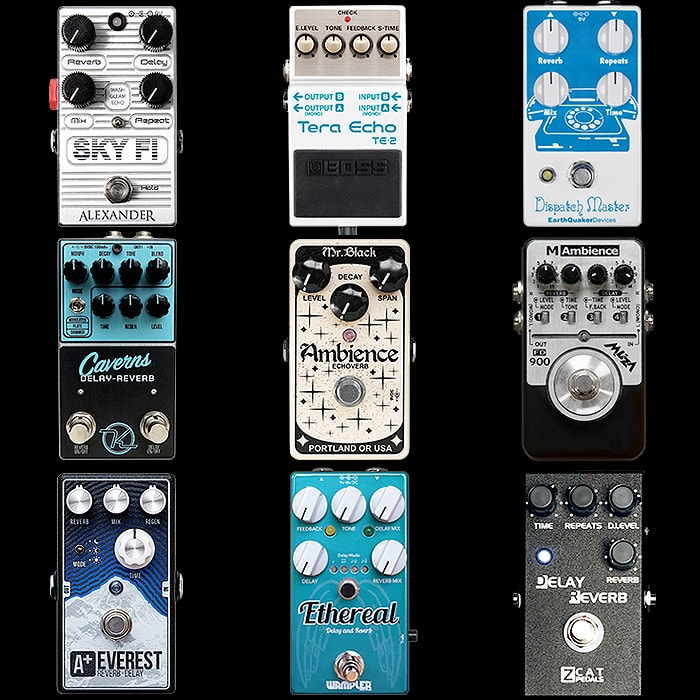12 of the Best Delay Workstation Pedals for Your Consideration
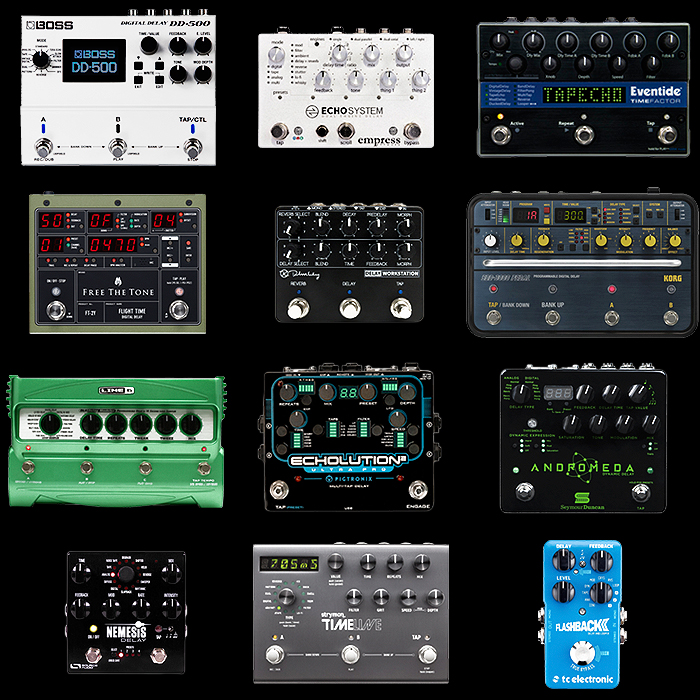
Some of you will have deduced from my relatively recent ’Empress EchoSystem vs Strymon TimeLine’ post that I recently made the move across to the new Empress EchoSystem Delay workstation - which I currently consider cream of the crop. Its Dual Effect abilities and easy selection of modes and parameters are what swung it for me. The Boss DD-500 does not appear to be quite up to the standard of the more recent RV-500 and MD-500 pedals, but supposedly a significant firmware update is due to happen in September - to bring the DD-500 more in line with the other two,
As for my incumbent Strymon TimeLine, I will still maintain this as an exceptional deputy to the EchoSystem. There are many things the TimeLine still does better than any other Delay pedal, and the ’Ice’ mode is still a standout feature. For day-to-day running though the EchoSystem has taken over and it seems to work jolly well alongside the Boss RV-500 - both those pedals are amazing.
The other heavy hitters here include the relatively timeless Eventide TimeFactor, and the rather enormous Korg SDD-3000 - which is perfect for all you Edge / U2 fans as it is based on the rack effects unit which so typefies that beloved U2 delay sound / texture. I would say the SDD-3000 is more of a studio pedal, but I have seen it on one or two pedalboards bizarrely enough - it kind of totally dominates the real estate though.
We then must make mention of the Pigtronix Echolution Ultra Pro and Line 6 DL4 - which are both quite distinctive in their own way - the Echolution does not have a series of different modes as such, but rather numerous LFO, Filter, Expression, Time, Taps, Speed and secondary parameters to give you all the different textures you need - rather than Analogue | Digital | Tape etc. The line 6 DL4 is somewhat old-fashioned looking and noticeably colours your tone, but that’s what its fans love it for - it does benefit from 4 footswitches which is excellent for the included looper features.
In the medium-sized category we have the very distinctive looking Free The Tone Flight Time, the Keeley Delay Workstation (again - c.v. Reverbs), and the relative newcomer from Seymour Duncan - the Andromeda. Each doing their own thing, and each with obvious strengths and weaknesses.
Finally and certainly not at all in the least - we have the more compact Source Audio Nemesis and TC Electronic Flasback 2 - which are both remarkably full-featured for their rather compact dimensions. In my opinion - had the DD-500 been as well engineered as the latter 2 pedals from Boss, that could have been more of a contender. As it is, I can’t see past the Empress EchoSystem - which has the most algorithms directly on-tap - everything controllable via surface dials, and really smart features including near enough sufficient preset options. I have long admired the Source Audio Nemesis, but the EchoSystem seems more my thing. I would be tempted though to try out the Echolution Pro at some stage as I hear really good things about that - and for price-point, feature set and form-factor - you cannot really beat the new and improved TCE Flashback 2 - which I may just acquire to experiment with at some stage. Otherwise I am totally happy with my TimeLine and EchoSystem pedals - I encourage you in particular to try out the latter if you are not familiar with it - it is one of my all-time favourite pedals - and really fun and easy to use - and of course sounds great!
Pedals are pictured and listed alphabetically by brand.
Boss DD-500 - £305
This one somehow passed me by when it first came out - did not see a huge fanfare about it, and came across a few lacklustre reviews - saying that the pedal was not as inspirational as a Strymon TimeLine etc. There do still seem to be quite a number of fans though, and this pedal seems to have got a bit of a mediocre rap for no good reason. That said, it is not as finessed and polished as the more recent MD-500 and RV-500 pedals - so perhaps the promised imminent firmware update will raise this pedal back up to its true potential. If it can be anything like its two siblings it can't be bad. Its 12 key algorithm modes are - Standard | Tera Echo | Slow Attack | Filter | Shimmer | SFX | Reverse | Pattern | Dual | Vintage Digital | Tape | Analog. It certainly has all the hallmarks of a classic big box pedal, let's hope the firmware update sorts out its supposed shortcomings.
Empress EchoSystem - £449
This is my current preferred Delay Workstation - I saw so many positive demos around its release that I had to check it out, and I am totally delighted with it so far. You can read my 'Empress EchoSystem vs Strymon TimeLine' post for further details if you wish, but I really love the EchoSystem. As with any pedal there are certain idiosyncrasies, and some of its instant benefits can also be weaknesses. For instance I like how easy and quickly it is to dial in something highly satisfactory - although dialling it in a second time (without display defined integers etc. - is more tricky). I still find the presets system smart but a little clunky, and wonder why they did not make a more concerted effort like Strymon on default presets. Other than those fairly minor quibbles, this pedal is immense - the way you select all the modes and submodes via colour coordinated LEDs, and you you can play two delays in parallel, series of A/B stereo channel split. Pedal sounds fantastic too and has the most algorithms of any on-tap, although all these pedals classify and quantify effect parameters differently - so that in some areas the Strymon has more finesse, and in other areas it is the EchoSystem. Overall I really love the EchoSystem and am totally delighted with my choice.
Eventide TimeFactor - £409
So this is one of the original big box delay workstations which you don't hear quite so much about these days. The Eventide Space seems to get all the coverage / love over its siblings and this one seems to have fallen slightly into the shade, nevertheless - this kind of set the template for what Strymon etc. followed. The TimeFactor's 10 default algorithm modes are - Digital Delay | Vintage Delay | Tape Echo | Mod Delay | Ducked Delay | Band Delay | Filter Pong | MultiTap | Reverse | Looper. This is still quite a strong offering, but stating to show its age now as several newcomers have pushed it down the pecking order.
Free the Tone Flight Time ft-2 y - £406
This 'Back to the Future' looking pedal is a little like a junior version of the Pigtronix Echolution Pro (q.v.). Unlike most of the pedals on this page - it does not have individual distinct flavours - i.e. Analogue | Digital | Tape | Reverse etc. but a series of filter and modulation options. A key advantage of this type pedal is the larger defined digital integers display - which means you should have no problem in dialling the same tone in again and again - versus trying to tweak analogue dials to the exact same values as previously applied. You do have presets here, and although the controls take a while to get used to, the pedal is really quite intuitive once you start using it. The key advantage of the Flight Time is that it uses a microphone to sync delays to your playing pattern (BPM Analyzer) and the tap-tempo set - really clever. If you fancy the look and function of the Echolution, but want something slightly more automated and streamlined - this may just be it. David Gilmour supposedly uses one or two of these at a time as part of his live rig if that's a suitable recommendation. This pedal looks a little complex, but really isn't.
Keeley Delay Workstation - £299
I've already included this pedal in the Reverb category too, as handily this pedal covers both grounds - having separate Delay and Reverb Channels which can be combined together as follows - 6 Reverb + 2 Delays on one Channel - Spring | Chamber | Hall | Plate | Shimmer | Flanged | Tape (Delay) | Digital (Delay) and 8 Delay Effects on the other Channel - Slapback | Tape | Multihead | Analog | Digital | Subdivided | Ducking | Pitch. You play individually or combined and tweak via 4 control dials per channel. Really smart feature set in a compact mid-size enclosure - perfect for a practical pedalboard.
Korg SDD-3000 - discontinued - c£300 on Reverb.com
This rather large workstation pedal is supposedly a direct port across of the famed rack delay popularised by U2's Edge with some added input from Edge's guitar tech - Dallas Schoo. It obviously contains tonnes of feature within its significant real estate - including 8 modes - SDD-3000 | Analog | Tape | Modern | Kosmix | reverse | Pitch | Panning. There are all manner of modulation parameters - including Filter, Waveform, Intensity and Frequency. If you really love U2 and Edge - this is your pedal, I would say that it's not really pedalboard-friendly, although I have seen it featured on a couple of boards. I guess it's just too large for some - likely great as a studio option. Obviously the uptake was not as great as Korg expected, and this pedal has since been discontinued. Perhaps Korg should try it again within a more compact format - no doubting the quality of the output though.
Line 6 DL4 - £180
A somewhat quirky and old-school looking delay workstation which very obviously colours your sound in a similar but slightly different way to the EHX Memory Man - this seems to be a significant part of the appeal. Looks like something that was designed in the 60s - but has held up rather well despite its quirks; having 4 footswitch buttons really helps with control, particularly with the onboard looper. There are 16 modes on-tap here - Tube Echo | Tape Echo | Multi-Head | Sweep Echo | Analog Echo | Analog w/Mod | Lo Res Delay | Digital Delay | Digital w/Mod | Rhythmic Delays | Stereo Delays | Ping Pong | Reverse | Dynamic Delay | Auto-Volume Echo | Loop Sampler. It's a very old-fashioned pedal in many ways - the whole setup really, but still finds lots of fans and still appears on a bunch of pedalboards. It's very affordable and pretty good value - you certainly get quite a lot of bang for your buck, but it cannot really properly compete with its more modern alternatives. Nice to know it's still a viable choice though.
Pigtronix Echolution 2 Ultra Pro - £499
This is one that many of the pros really love - it's a bit of a left field choice, and does not categorise its modes in as streamlined fashion as is mostly the way. I've already stated a similarity between this one and the Flight Time above - in that its more about Intervals, Filters, Modulations, Wafeforms, Pitch-Shifting and various detailed parameters which shape each delay versus having a specific bank of delay types with set attributes. So that you can apply Reverse and Duck pretty universally for instance. It provides a slightly different aesthetic to the Flight Time, but both are similar in their display-oriented approach. The Echolution Ultra Pro offers a quite a few more flavours than the Flight Time, but does not have that one's killer feature - i.e. the mic-assisted BPM Analyzer / auto adjustment. The more I learn about the Echolution and Flight Time, the more they intrigue me, but as I have both TimeLine and EchoSystem, I really don't need another big box workstation - if I do acquire either of these - it will be some time further down the road, and likely as a second-hand bargain on Reverb.com. Really cool pedal nevertheless.
Seymour Duncan Andromeda - £285
After the previous few its nice to get back to a more conventional big box delay workstation - this one very recently released - I guess it got kind of swamped by the slightly more innovative Empress EchoSystem, but the Andromeda is still a worthwhile contender. It only has 8 modes - 4 each of Analog and Digital - Normal | Ping Pong | Reverse | Reverse Pong for each. Its strength it in its Modulation and Dynamic Expression options. Probably not enough to threaten the upper echelon contenders, but has plenty on tap to compete at the middle level. It's always nice to see innovative approaches - where most delay pedals can overlap to a significant degree - there is always room for one more - especially if it does its own thing.
Source Audio Nemesis - £289
This pedal was pretty revolutionary when it launched last year - cramming a full featured 12 default mode big box type delay workstation into a mid-sized Strymon-esque enclosure. While there are 12 modes on-tap - Degrade | Shifter | Helix | Reverse | Sweeper | Rhythmic | Slapback | Digital | Diffuse | Analog | Tape | Noise Tape; you have 12 further modes accessible via the Source Audio Neuro App - meaning if you have preferences there you can swap some or all of those with the defaults. Everything is fine-tunable via surface dials, and there are more parameters available via the app. An obvious downside is the non-footswitchable presets - of which you get 8. But for such a neat form factor this certainly comes pretty fully loaded, and offers plenty to challenge the big box giants. I long considered going down the Source Audio route - what with the imminent arrival of the Ventris - for a really neat one-two of delay and reverb. I am glad though I held out a while, as I am delighted with my current combination of EchoSystem + RV-500. I still haven't dismissed this though, as I think it's a truly great alternative - and it has numerous fans to back that up.
Strymon TimeLine - £399
And so onto my former delay mainstay - which is of course still amazing - in particular the 'Ice' mode. I have also mentioned on a couple of posts how cleverly Strymon 'tune' their effects tone-stacks to make them sound pristine and lush, while at the same time having a sort of universal sweet spot that means you can almost load anything throught these pedals and they still sound good. While you try the same with others and you get low-end warble and distortion / unwanted feedback from the delay. I will never get rid of the TimeLine, it is still an amazing pedal and an excellent deputy to the Empress EchoSystem. The TimeLine's 12 modes are - dTape | dBucket | Digital | Dual | Pattern | Reverse | Ice | Duck | Swell | Trem | Filter | Lo-fi. The TimeLine has several different effects to the EchoSystem, although the EchoSystem has more overall, the TimeLine also has an existing onboard Looper pedal function, while that has yet to materialise for the EchoSystem (it is relatively imminent I am led to believe). There are various pros and cons on both sides, but my number 1 delay pedal at the moment is definitely the Empress EchoSystem, with the TimeLine at #2.
TC Electronic Flashback 2 - £166
Hot on the heals of the fantastically revamped Hall of Fame, those Danish geniuses have done the same with the regular-sized Flashback pedal - tweaked all the default settings (+added Crystal), added the pressure-sensitive MASH footswitch, and upped TonePrint slots from 1 to 3. With 11 modes on tap - 2290 | Analogue | Tape | Dynamic | Modulated | Crystal | Reverse | Looper | TonePrint 1 | TonePrint 2 | TonePrint 3; there is really nothing that comes close at this price or form factor, For a regular pedal size all-round delay and reverb, I would say unequivocally TC Electronic give you the best options. TC Electronic also have bigger box alternatives like the Flashback X4 and the Flashback Triple Delay - but the regular pedal is certainly the neatest, they just now need to figure out how to switch modes via footswitch - that is the key advantage of the larger 2 and 3 button alternatives - the ability to easily and quickly switch between presets. For what it does though, the Flashback 2 is way out in the lead in its category.
So as mentioned above - there are a number of pedals the pique my interest here, I am looking forward to seeing what the Boss DD-500 looks like post firmware update, I'm also quite keen on the Echolution Pro, Flight Time and Nemesis. And although I really don't nee any further delay alternatives, I might just get the Flashback 2 to play around with further TonePrint textures, as well as the MASH footswitch ability. I am pretty satisfied that this selection properly represents 12 of the very best delay workstation pedals currently available. Note that even though the Korg SDD-3000 is out of production, there seem to be fairly frequent examples of second-hand ones appearing on Reverb.com every now and again. Much like with my previous Reverb Workstations post - there should really be something for everyone here. From a budgetary point of view there is an interesting battle to be had between the £166 Flashback 2, and full footswitchable 16-mode Line 6 DL4 - I always have to consider the actual footprint / size impact factor too, and the Line 6 does take up a lot of pedal real estate, but then it does have 4 footswitches which offer perfect control over its looper functions - choices choices ...
